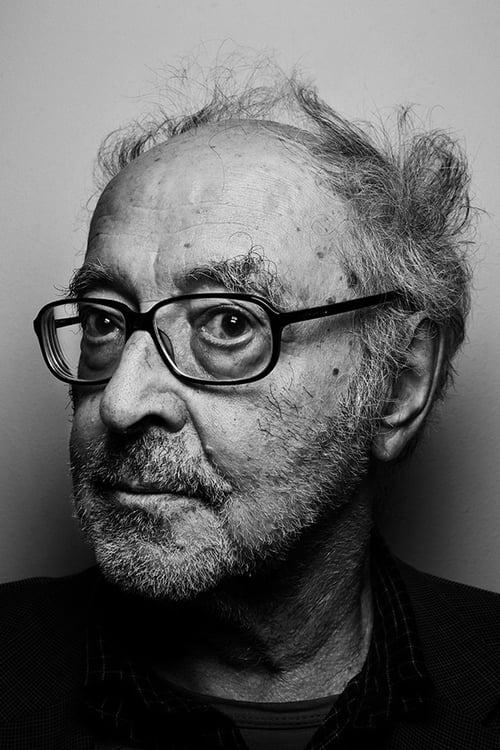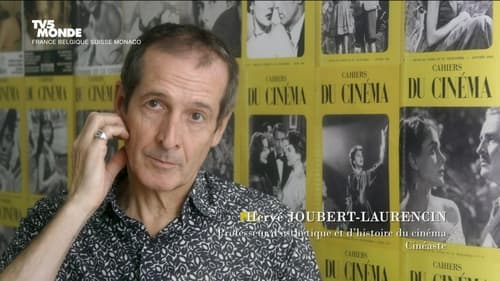
Self

Director
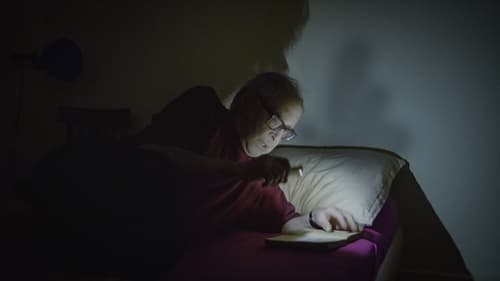
Himself
"We should start with a correspondence, maybe we will not correspond to one another. Ebrahim can send me a letter this Friday, and I'll answer him next Friday. So, see you Friday, Robinson!" And so, Jean-Luc Godard stages himself in his daily thought, wisely desperate, and sends images and words from Switzerland to the other side of the Channel. In his mansion in Sussex, Ebrahim Golestan tries to decode these UFO-messages and skilfully seeks to bring them back to the appearance of reason. And so on, until the day a veil falls over the two Gods on the run. Does the existence of poets still have any meaning in these times of distress?
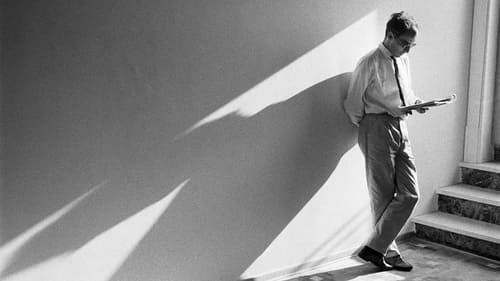
Jean-Luc Godard is cinema, its quintessence. Just turned 91, he has made more than 140 films. We hate him as much as we worship him. Where does his aura come from? From legendary films of course, but also from Godard himself. He is a public figure as much as a man shrouded in mystery. Everything and its opposite, he has taken all possible paths. It is not easy to seize such a legendary, enigmatic giant. Godard’s itinerary follows one direction only: a constant renewal of his art. He sees the creative act as a necessary act of criticism and deconstruction.” I always start from the negative. I am a positive man who starts from the negative”. The artist reinvents himself tirelessly, and inevitably destroys himself. This portrait wants to take us beyond the clichés of a myth that has sometimes become caricatural, to meet a man more sentimental than it seems, a man inhabited, sometimes surpassed, by his art. Because yes, Godard is human. Not just a machine who thinks and creates images.

During the quarantine promoted by the Coronavirus, hundreds of videos posted on Darwin's personal Instagram become a biased diary of our time, of the last 10 years and, at the same time, a deep dive into his being, a dive for those who see and for those who made, an experience of discovery, resistance and contemplation, for both sides.

Archive Footage (Himself)

Self (archival footage)
For Jean-Luc Godard,
with all the admiration and affection of Jacques Perconte and Nicole Brenez.
December 3, 2020.

Self (archive footage)
Born in Berlin in 1896, Lotte Eisner became famous for her passionate involvement in the world of both German and French cinema. In 1936, together with Henri Langlois, she founded the Cinémathèque Française with the goal of saving from destruction films, costumes, sets, posters, and other treasures of the 7th Art. A Jew exiled in Paris, she became a pillar of the capital's cultural scene, where she promoted German cinema.

Self (archive footage)
A short film by Joel Nguyen, made for his mother. Influenced from Agnès Varda

Self (archive footage)
A short film by Joel Nguyen, made for his mother. Influenced from Agnès Varda

Writer
A special version of ‘Dans le noir du temps’ for viewers in Ramallah and the Gaza Strip.

Director
A special version of ‘Dans le noir du temps’ for viewers in Ramallah and the Gaza Strip.
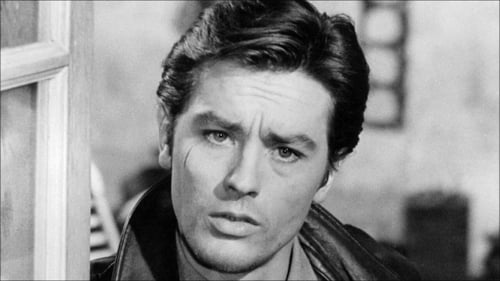
Self (archive footage)

Self (archive footage)
This documentary recounts the life of the late composer Michel Legrand, known for his works on Les Parapluies de Cherbourg or Les Demoiselles De Rochefort with the famous director Jacques Demy.

himself
In 2010, Godard's Film Socialisme explores the sinking of political ideals in Europe. In 2012, the Costa Concordia, which had served as an allegorical platform for Godard, sank in front of the cameras of passengers and the world. In 2018, Paul Grivas Film Catastrophe, looks at images of the disaster to revisit the film factory
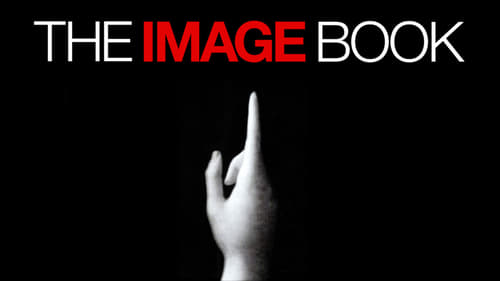
Narrator (voice)
Jean-Luc Godard returns with a bracing, beautiful and confrontational essay film. Splicing together classic film clips and newsreel footage, often stretched, saturated and distorted almost beyond recognition, The Image Book interrogates our relationship with film, culture and global politics.

Editor
Jean-Luc Godard returns with a bracing, beautiful and confrontational essay film. Splicing together classic film clips and newsreel footage, often stretched, saturated and distorted almost beyond recognition, The Image Book interrogates our relationship with film, culture and global politics.

Writer
Jean-Luc Godard returns with a bracing, beautiful and confrontational essay film. Splicing together classic film clips and newsreel footage, often stretched, saturated and distorted almost beyond recognition, The Image Book interrogates our relationship with film, culture and global politics.

Director
Jean-Luc Godard returns with a bracing, beautiful and confrontational essay film. Splicing together classic film clips and newsreel footage, often stretched, saturated and distorted almost beyond recognition, The Image Book interrogates our relationship with film, culture and global politics.

Self (archive footage)

Rue du Temple, Rolle, Switzerland, June 2013.

Himself (archive footage) (uncredited)
Major actress of the New Wave, Anna Karina is bound to the great renewal of cinema in the 1960s. Her companion in life, Dennis Berry revisits the story of her memories with Jean-Luc Godard and the great directors she knew, her memorable meeting with Serge Gainsbourg, and also, more recently, her career as a singer. With a gaze halfway between mischief and severity, the New Wave's Danish muse embodied a new feminity – deeply linked with women's liberation.

Self (archive footage)

Self (archive footage)
An inquiry into two of the most influencial French filmakers friendship and feud.
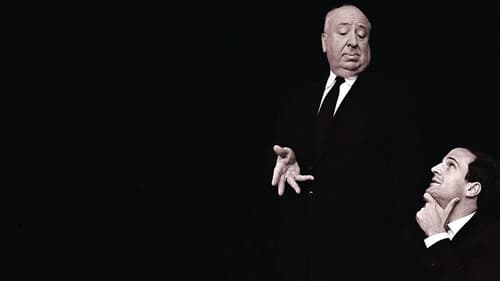
Self (archive footage) (uncredited)
Filmmakers discuss the legacy of Alfred Hitchcock and the book “Hitchcock/Truffaut” (“Le cinéma selon Hitchcock”), written by François Truffaut and published in 1966.

Himself
Jean-Luc Godard's acceptance video for the 2015 'Prix d’honneur'.

Editor
Jean-Luc Godard's acceptance video for the 2015 'Prix d’honneur'.

Director
Jean-Luc Godard's acceptance video for the 2015 'Prix d’honneur'.

(archive material)
At the end of the 1960s the post-war generation began to revolt against their parents. This was a generation disillusioned by anti-communist capitalism and a state apparatus in which they believed they saw fascist tendencies. This generation included journalist Ulrike Meinhof, lawyer Horst Mahler, filmmaker Holger Meins as well as students Gudrun Ensslin and Andreas Baader.
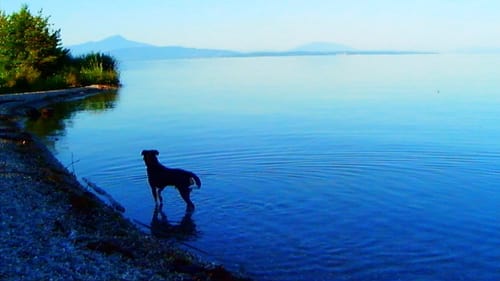
Narrator (voice)
"It's a simple subject. A married woman and a single man meet. They love each other, fight, blows rain down. A dog wanders between town and countryside. Seasons pass. The man and woman get back together. The dog comes between them. The other is in one of them. One of them is in the other. And then there are three people. The ex-husband makes everything explode. A second film begins. The same as the first. And yet, not. From the human species, we move on to metaphor. It will end in barking. And a baby's cries." -JLG

Writer
"It's a simple subject. A married woman and a single man meet. They love each other, fight, blows rain down. A dog wanders between town and countryside. Seasons pass. The man and woman get back together. The dog comes between them. The other is in one of them. One of them is in the other. And then there are three people. The ex-husband makes everything explode. A second film begins. The same as the first. And yet, not. From the human species, we move on to metaphor. It will end in barking. And a baby's cries." -JLG

Director
"It's a simple subject. A married woman and a single man meet. They love each other, fight, blows rain down. A dog wanders between town and countryside. Seasons pass. The man and woman get back together. The dog comes between them. The other is in one of them. One of them is in the other. And then there are three people. The ex-husband makes everything explode. A second film begins. The same as the first. And yet, not. From the human species, we move on to metaphor. It will end in barking. And a baby's cries." -JLG
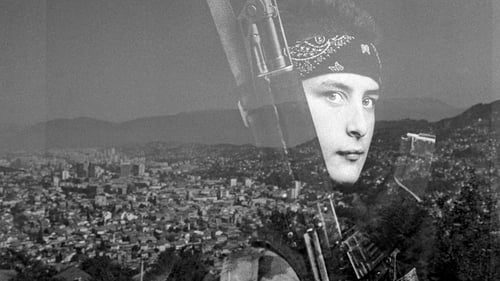
Director
Thirteen European directors explore the theme of Sarajevo; what this city has represented in European history over the past hundred years, and what Sarajevo stands for today in Europe. These eminent filmmakers of different generations and origins offer exceptional singular styles and visions.
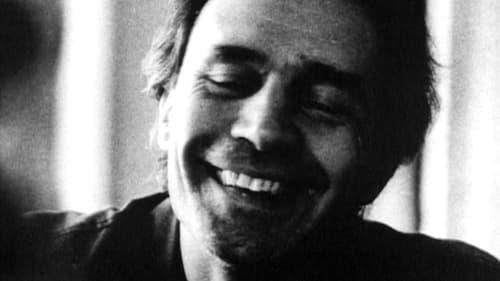
Himself
Rather than writing a simple letter to explain his absence from the press conference for his latest Cannes entry, "Goodbye to Language," at the Cannes Film Festival, instead, legendary filmmaker Jean-Luc Godard created a video "Letter in motion to (Cannes president) Gilles Jacob and (artistic director) Thierry Fremaux." The video intercuts from Godard speaking cryptically about his "path" to key scenes from Godard classics such as "Alphaville" and "King Lear" with Burgess Meredith and Molly Ringwald, and quotes poet Jacques Prevert and philosopher Hannah Arendt.

Writer
Rather than writing a simple letter to explain his absence from the press conference for his latest Cannes entry, "Goodbye to Language," at the Cannes Film Festival, instead, legendary filmmaker Jean-Luc Godard created a video "Letter in motion to (Cannes president) Gilles Jacob and (artistic director) Thierry Fremaux." The video intercuts from Godard speaking cryptically about his "path" to key scenes from Godard classics such as "Alphaville" and "King Lear" with Burgess Meredith and Molly Ringwald, and quotes poet Jacques Prevert and philosopher Hannah Arendt.

Director
Rather than writing a simple letter to explain his absence from the press conference for his latest Cannes entry, "Goodbye to Language," at the Cannes Film Festival, instead, legendary filmmaker Jean-Luc Godard created a video "Letter in motion to (Cannes president) Gilles Jacob and (artistic director) Thierry Fremaux." The video intercuts from Godard speaking cryptically about his "path" to key scenes from Godard classics such as "Alphaville" and "King Lear" with Burgess Meredith and Molly Ringwald, and quotes poet Jacques Prevert and philosopher Hannah Arendt.

Director
Short film included in the film "Les ponts de Sarajevo"

Writer
Short film originally made as part of the anthology film, 3x3D. Jean-Luc Godard's first 3-D film interrogates the history of the technology and explores its possibilities.

Director
Short film originally made as part of the anthology film, 3x3D. Jean-Luc Godard's first 3-D film interrogates the history of the technology and explores its possibilities.

Narrator
Short film originally made as part of the anthology film, 3x3D. Jean-Luc Godard's first 3-D film interrogates the history of the technology and explores its possibilities.
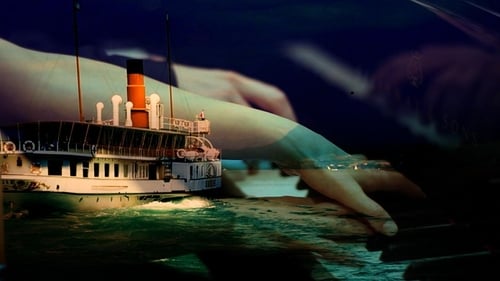
Writer
A triptych of short stereoscopic films by Peter Greenaway, Jean-Luc Godard and Edgar Pêra. Includes "The Three Disasters" by Godard, "Cinesapiens" by Pêra and "Just in Time" by Greenaway.

Director
A triptych of short stereoscopic films by Peter Greenaway, Jean-Luc Godard and Edgar Pêra. Includes "The Three Disasters" by Godard, "Cinesapiens" by Pêra and "Just in Time" by Greenaway.

Editor
A collaborator since 2002 (Notre Musique), Fabrice Aragno did not want to make a documentary ‘on’ but ‘with’ Jean-Luc Godard. The latter decided on a mathematical approach. The TV station asked for 26 minutes, and so Godard suggested they make 26 one-minute sequences, and have 4 shots in each sequence, all recycled from his work.

A collaborator since 2002 (Notre Musique), Fabrice Aragno did not want to make a documentary ‘on’ but ‘with’ Jean-Luc Godard. The latter decided on a mathematical approach. The TV station asked for 26 minutes, and so Godard suggested they make 26 one-minute sequences, and have 4 shots in each sequence, all recycled from his work.

Screenplay
A collaborator since 2002 (Notre Musique), Fabrice Aragno did not want to make a documentary ‘on’ but ‘with’ Jean-Luc Godard. The latter decided on a mathematical approach. The TV station asked for 26 minutes, and so Godard suggested they make 26 one-minute sequences, and have 4 shots in each sequence, all recycled from his work.

Self (archive footage)
The film retraces Jean-Luc Godard's notorious exhibition at the Centre national d'art et de culture Georges Pompidou in Paris between 11 May – 14 August 2006.

Self (archive footage)

Self (archive footage)
Documentary by Luc Lagier exploring Godard's career as a filmmaker, the production of Breathless and his influence and his relationship with American cinema.

Himself
In 2009, in a small theater in Geneva, Switzerland, the film directors Marcel Ophuls and Jean-Luc Godard met for an unusual, surprisngly intimate and sometimes contentious dialogue with each other in front of a live audience. Luckily for us, it was filmed.

Self
An interview with Jean-Luc Godard by Dominique Maillet and Pierre-Henri Gibert, filmed on August 10, 2010 at the Hôtel de Vendôme in Paris.
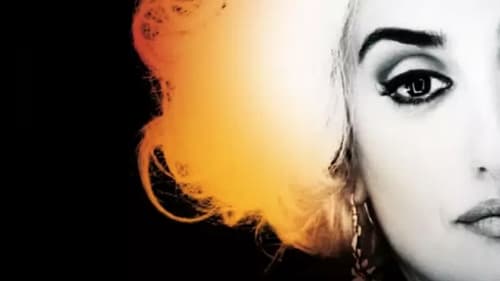
Self
Actresses' hairstyle in movies always carries a strong aesthetic statement associated with erotic, social, and historical meanings. In a bold and unexpected way, the film revisits this ultimate symbol of femininity in international cinema.
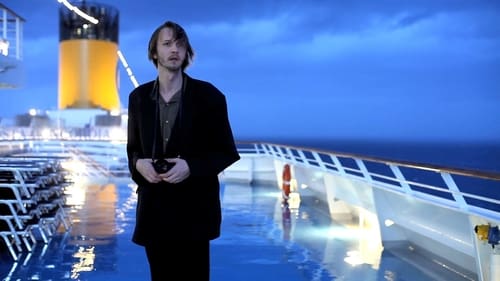
Editor
A symphony in three movements. Things such as a Mediterranean cruise, numerous conversations, in numerous languages, between the passengers, almost all of whom are on holiday... Our Europe. At night, a sister and her younger brother have summoned their parents to appear before the court of their childhood. The children demand serious explanations of the themes of Liberty, Equality and Fraternity. Our humanities. Visits to six sites of true or false myths: Egypt, Palestine, Odessa, Hellas, Naples and Barcelona.

Screenplay
A symphony in three movements. Things such as a Mediterranean cruise, numerous conversations, in numerous languages, between the passengers, almost all of whom are on holiday... Our Europe. At night, a sister and her younger brother have summoned their parents to appear before the court of their childhood. The children demand serious explanations of the themes of Liberty, Equality and Fraternity. Our humanities. Visits to six sites of true or false myths: Egypt, Palestine, Odessa, Hellas, Naples and Barcelona.

Director
A symphony in three movements. Things such as a Mediterranean cruise, numerous conversations, in numerous languages, between the passengers, almost all of whom are on holiday... Our Europe. At night, a sister and her younger brother have summoned their parents to appear before the court of their childhood. The children demand serious explanations of the themes of Liberty, Equality and Fraternity. Our humanities. Visits to six sites of true or false myths: Egypt, Palestine, Odessa, Hellas, Naples and Barcelona.

Self (archive footage)
An in-depth analysis of the relationship between New Wave pioneers François Truffaut and Jean-Luc Godard, as seen through rare archival footage, interviews, and film excerpts — written and narrated by former Cahiers du Cinéma editor Antoine de Baecque.

Himself
An artist-criminal far from home asks his assistant to pirate a rare videotape before the German Post Office Authorities come to confiscate it.

Lui-même

Himself

Brief, fragmented memories of Rohmer spoken by Godard, while the screen shows various titles of articles Rohmer wrote for Cahiers du Cinema.

Director
Brief, fragmented memories of Rohmer spoken by Godard, while the screen shows various titles of articles Rohmer wrote for Cahiers du Cinema.

Self
Fourty-six years since the release of Le mépris, Jean-Luc Godard watches the film again to comment on it and its tumultuous production. Featuring interviews with: Jacques Rozier, Alain Bergala, Michel Piccoli, Charles Bitsch.

Self (archive footage)

Himself
A movie about the contempt of the man who recorded the contempt.

Director
A collage made from fragments.

Self (archive footage)
What is the future of cinema? In 1982, in Cannes, Wim Wenders invited many movie makers to answer this question. 26 years later, the question remains, but Wenders is now on the other side of the camera.

Editor
Introduction of the 2008 Viennale.

Screenplay
Introduction of the 2008 Viennale.

Director
Introduction of the 2008 Viennale.

Self (archive footage)
What is the state of cinema and what being a filmmaker means? What are the measures taken to protect authors' copyright? What is their legal status in different countries? (Sequel to “Filmmakers vs. Tycoons.”)

Director
A collection of short films by 16 European directors.
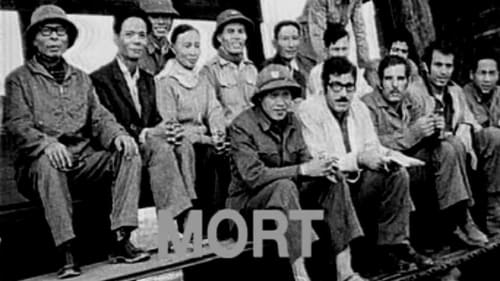
A dense work, citing everyone from Tarantino and Verhoeven to Artaud and Chaplin, made for Godard's exhibition at the Centre Pompidou, Voyage(s) en utopie.

Screenplay
A dense work, citing everyone from Tarantino and Verhoeven to Artaud and Chaplin, made for Godard's exhibition at the Centre Pompidou, Voyage(s) en utopie.

Director
A dense work, citing everyone from Tarantino and Verhoeven to Artaud and Chaplin, made for Godard's exhibition at the Centre Pompidou, Voyage(s) en utopie.

Director
Director Jean-Luc Godard reflects in this movie about his place in film history, the interaction of film industry and film as art, as well as the act of creating art.

Writer
Jean-Luc Godard, and Anne-Marie Miéville Four Short Films

Director
Jean-Luc Godard, and Anne-Marie Miéville Four Short Films

Narrator
Jean-Luc Godard, and Anne-Marie Miéville Four Short Films

Screenplay
Also punningly known as Ecce Homo; Excès oh! Mot.

Director
Also punningly known as Ecce Homo; Excès oh! Mot.

Contemporary film critics regard the epic film I Am Cuba as a modern masterpiece. The 1964 Cuban/Soviet coproduction marked a watershed moment of cultural collaboration between two nations. Yet the film never found a mass audience, languishing for decades until its reintroduction as a "classic" in the 1990s. Vicente Ferraz explores the strange history of this cinematic tour de force, and the deeper meaning for those who participated in its creation.

Self
This documentary reunites director Peter Lennon and cinematographer Raoul Coutard, who recount the making of their then controversial but now classic documentary on Ireland in the Sixties. Rocky Road to Dublin was screened for only a few weeks at a single Dublin theatre.
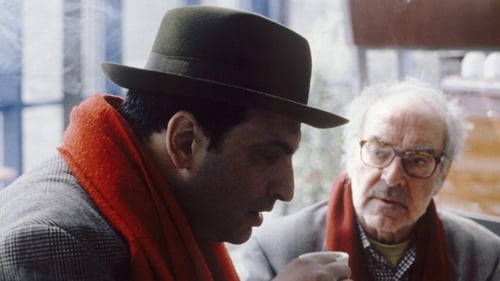
Editor
Divided into three “kingdoms” — Enfer (Hell), Purgatoire (Purgatory) and Paradis (Paradise) — Notre Musique is an indictment of modern times.

Writer
Divided into three “kingdoms” — Enfer (Hell), Purgatoire (Purgatory) and Paradis (Paradise) — Notre Musique is an indictment of modern times.

Director
Divided into three “kingdoms” — Enfer (Hell), Purgatoire (Purgatory) and Paradis (Paradise) — Notre Musique is an indictment of modern times.

Himself
Divided into three “kingdoms” — Enfer (Hell), Purgatoire (Purgatory) and Paradis (Paradise) — Notre Musique is an indictment of modern times.

Editor
Jean-Luc Godard addresses two filmic letters to young Israeli soldiers who were sentenced after refusing to intervene in the occupied territories.

Writer
Jean-Luc Godard addresses two filmic letters to young Israeli soldiers who were sentenced after refusing to intervene in the occupied territories.

Director
Jean-Luc Godard addresses two filmic letters to young Israeli soldiers who were sentenced after refusing to intervene in the occupied territories.

On June 3, 1991, Marguerite Duras gave me her last published work, "The North China Lover", autographed for the first time. She wrote: "For my friend Dominique Auvray, in memory of a wonder of wonders: a still recent past, when we worked together in the cinema". This is a portrait of her as she was cheerful and serious, authentic and provocative, considerate and categorical, but first and foremost young and free.
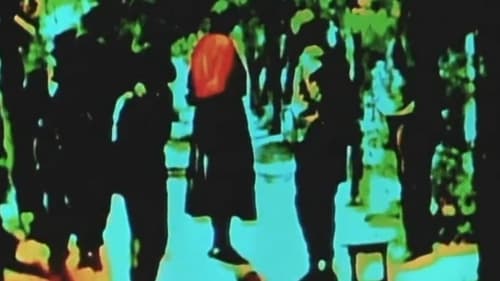
Director
Conceived as a reflection on the theme of time at the turn of the millennium, "Dans le noir du temps" functions as a Pandora’s box which hides all the horrors of the world: the last moments of youth, fame, thoughts, memory, love, silence, history, fear, eternity and, of course, cinema.

Director
Collection of short films the summaries of which include; a foreign man moving to Italy, getting married and having a child; a four split scene short involving plot-less images of old people with television sets for heads, a beautiful woman having sex, and overall confusion; and an old man reminiscing over his youth.
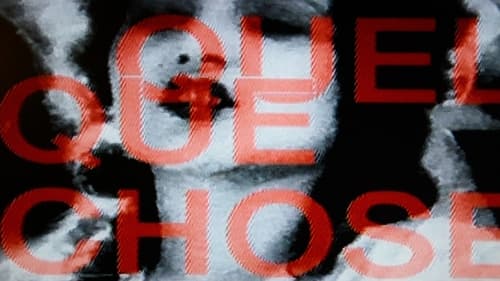
Writer
A very personal look at the history of cinema directed, written and edited by Jean-Luc Godard in his Swiss residence in Rolle for ten years (1988-98); a monumental collage, constructed from film fragments, texts and quotations, photos and paintings, music and sound, and diverse readings; a critical, beautiful and melancholic vision of cinematographic art. (Abridged version of the original collection of eight short films).

Editor
A very personal look at the history of cinema directed, written and edited by Jean-Luc Godard in his Swiss residence in Rolle for ten years (1988-98); a monumental collage, constructed from film fragments, texts and quotations, photos and paintings, music and sound, and diverse readings; a critical, beautiful and melancholic vision of cinematographic art. (Abridged version of the original collection of eight short films).

Self - Filmmaker / Narrator (voice)
A very personal look at the history of cinema directed, written and edited by Jean-Luc Godard in his Swiss residence in Rolle for ten years (1988-98); a monumental collage, constructed from film fragments, texts and quotations, photos and paintings, music and sound, and diverse readings; a critical, beautiful and melancholic vision of cinematographic art. (Abridged version of the original collection of eight short films).

Director
A very personal look at the history of cinema directed, written and edited by Jean-Luc Godard in his Swiss residence in Rolle for ten years (1988-98); a monumental collage, constructed from film fragments, texts and quotations, photos and paintings, music and sound, and diverse readings; a critical, beautiful and melancholic vision of cinematographic art. (Abridged version of the original collection of eight short films).
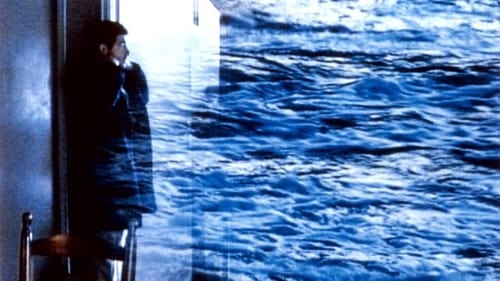
Writer
Someone we hear talking - but whom we do not see - speaks of a project which describes the four key moments of love: meeting, physical passion, arguments/separation and making up. This project is to be told through three couples: young, adult and old. We do not know if the project is for a play, a film, a novel or an opera. The author of the project is always accompanied by a kind of servant. Meanwhile, two years earlier, an American civil servant meets with an elderly French couple who had fought in the Resistance during World War II, brokering a deal with a Hollywood director to buy the rights to tell their story. The members of the old couple's family discuss heatedly questions of nation, memory and history.

Director
Someone we hear talking - but whom we do not see - speaks of a project which describes the four key moments of love: meeting, physical passion, arguments/separation and making up. This project is to be told through three couples: young, adult and old. We do not know if the project is for a play, a film, a novel or an opera. The author of the project is always accompanied by a kind of servant. Meanwhile, two years earlier, an American civil servant meets with an elderly French couple who had fought in the Resistance during World War II, brokering a deal with a Hollywood director to buy the rights to tell their story. The members of the old couple's family discuss heatedly questions of nation, memory and history.
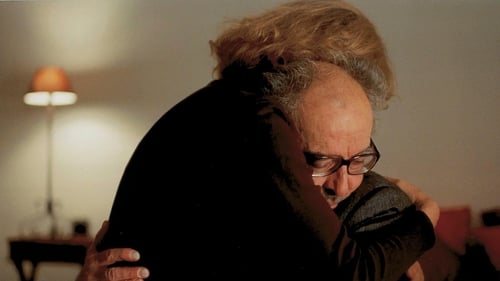
Robert
An elderly couple and a younger man and woman follow up failed seduction attempts with conversation about love and the meaning of life.

Editor
Essay on the influence of arts at the end of the 20th century produced by the Museum of Modern Art.

Writer
Essay on the influence of arts at the end of the 20th century produced by the Museum of Modern Art.

Director
Essay on the influence of arts at the end of the 20th century produced by the Museum of Modern Art.
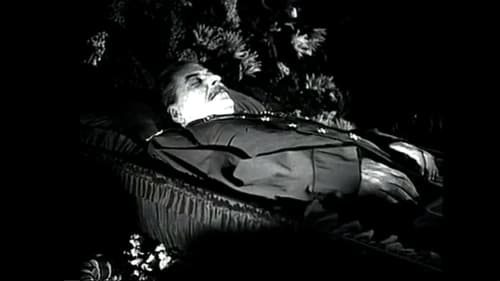
Editor
Commissioned by the heads of the 2000 Cannes Film Festival to make an opening-night short commemorating cinema as it enters its second full century, Godard instead offers up a 17-minute barrage of re-edited footage of wars and Nazi atrocities, interspersed with clips of Maurice Chevalier in "Gigi" and Godard's own "À bout de souffle."

Writer
Commissioned by the heads of the 2000 Cannes Film Festival to make an opening-night short commemorating cinema as it enters its second full century, Godard instead offers up a 17-minute barrage of re-edited footage of wars and Nazi atrocities, interspersed with clips of Maurice Chevalier in "Gigi" and Godard's own "À bout de souffle."

Director
Commissioned by the heads of the 2000 Cannes Film Festival to make an opening-night short commemorating cinema as it enters its second full century, Godard instead offers up a 17-minute barrage of re-edited footage of wars and Nazi atrocities, interspersed with clips of Maurice Chevalier in "Gigi" and Godard's own "À bout de souffle."

Self
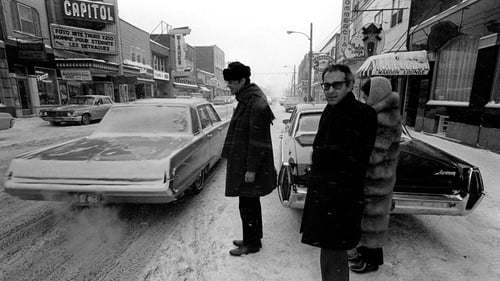
Himself (voice)

Self (archive footage)
A compilation of the most spectacular TV moments thanks to the presence and evocation of Jean-Luc Godard on the small screen. Godard's presence has never been, and never will be, anodyne or banal. The subversion of everyday television.

Editor
Part 8 of Godard's 8 part examination of the history of the concept of cinema and how it relates to the 20th century.

Writer
Part 8 of Godard's 8 part examination of the history of the concept of cinema and how it relates to the 20th century.

Part 8 of Godard's 8 part examination of the history of the concept of cinema and how it relates to the 20th century.

Director
Part 8 of Godard's 8 part examination of the history of the concept of cinema and how it relates to the 20th century.

Editor
Part 7 of Godard's 8 part examination of the history of the concept of cinema and how it relates to the 20th century.

Writer
Part 7 of Godard's 8 part examination of the history of the concept of cinema and how it relates to the 20th century.

Part 7 of Godard's 8 part examination of the history of the concept of cinema and how it relates to the 20th century.

Director
Part 7 of Godard's 8 part examination of the history of the concept of cinema and how it relates to the 20th century.

Editor
Part 6 of Godard's 8 part examination of the history of the concept of cinema and how it relates to the 20th century

Writer
Part 6 of Godard's 8 part examination of the history of the concept of cinema and how it relates to the 20th century

Part 6 of Godard's 8 part examination of the history of the concept of cinema and how it relates to the 20th century

Director
Part 6 of Godard's 8 part examination of the history of the concept of cinema and how it relates to the 20th century

Editor
Part 5 of Godard's 8 part examination of the history of the concept of cinema and how it relates to the 20th century.

Writer
Part 5 of Godard's 8 part examination of the history of the concept of cinema and how it relates to the 20th century.

Part 5 of Godard's 8 part examination of the history of the concept of cinema and how it relates to the 20th century.

Director
Part 5 of Godard's 8 part examination of the history of the concept of cinema and how it relates to the 20th century.

Self
In 1998, Jean-Luc Godard made a short video entitled Adieu au TNS (Farewell to the TNS). Never released (or intended to be), the video is nearly impossible to see and has not been included in any Godard retrospectives to date.

Editor
In 1998, Jean-Luc Godard made a short video entitled Adieu au TNS (Farewell to the TNS). Never released (or intended to be), the video is nearly impossible to see and has not been included in any Godard retrospectives to date.

Director of Photography
In 1998, Jean-Luc Godard made a short video entitled Adieu au TNS (Farewell to the TNS). Never released (or intended to be), the video is nearly impossible to see and has not been included in any Godard retrospectives to date.

Producer
In 1998, Jean-Luc Godard made a short video entitled Adieu au TNS (Farewell to the TNS). Never released (or intended to be), the video is nearly impossible to see and has not been included in any Godard retrospectives to date.

Writer
In 1998, Jean-Luc Godard made a short video entitled Adieu au TNS (Farewell to the TNS). Never released (or intended to be), the video is nearly impossible to see and has not been included in any Godard retrospectives to date.

Director
In 1998, Jean-Luc Godard made a short video entitled Adieu au TNS (Farewell to the TNS). Never released (or intended to be), the video is nearly impossible to see and has not been included in any Godard retrospectives to date.

Producer
Against the barren wintry backdrop of a psychiatric hospital, inpatients and authority figures drift through turgid psychological states. We meet the artist Jean and his lover Monica, patients of the facility, and several characters circling its periphery: a guard, an Episcopalian priest, and a church organist. Minimalizing dialogue and plot intricacy, Tregenza concedes only kernels of information, demanding that the viewer breathe dimensionality into his archetypes. Acting out primal instincts of lust, envy, fear, and love, subjects teeter vulnerably on the brink of sanity and insanity, freedom and repression in their attempts to navigate their existence.

Writer
A very personal look at the history of cinema directed, written and edited by Jean-Luc Godard in his Swiss residence in Rolle for ten years (1988-98); a monumental collage, constructed from film fragments, texts and quotations, photos and paintings, music and sound, and diverse readings; a critical, beautiful and melancholic vision of cinematographic art.

Editor
A very personal look at the history of cinema directed, written and edited by Jean-Luc Godard in his Swiss residence in Rolle for ten years (1988-98); a monumental collage, constructed from film fragments, texts and quotations, photos and paintings, music and sound, and diverse readings; a critical, beautiful and melancholic vision of cinematographic art.

Self - Filmmaker / Narrator (voice)
A very personal look at the history of cinema directed, written and edited by Jean-Luc Godard in his Swiss residence in Rolle for ten years (1988-98); a monumental collage, constructed from film fragments, texts and quotations, photos and paintings, music and sound, and diverse readings; a critical, beautiful and melancholic vision of cinematographic art.

Editor
A very personal look at the history of cinema directed, written and edited by Jean-Luc Godard in his Swiss residence in Rolle for ten years (1988-98); a monumental collage, constructed from film fragments, texts and quotations, photos and paintings, music and sound, and diverse readings; a critical, beautiful and melancholic vision of cinematographic art.

Writer
A very personal look at the history of cinema directed, written and edited by Jean-Luc Godard in his Swiss residence in Rolle for ten years (1988-98); a monumental collage, constructed from film fragments, texts and quotations, photos and paintings, music and sound, and diverse readings; a critical, beautiful and melancholic vision of cinematographic art.

Self - Filmmaker / Narrator (voice)
A very personal look at the history of cinema directed, written and edited by Jean-Luc Godard in his Swiss residence in Rolle for ten years (1988-98); a monumental collage, constructed from film fragments, texts and quotations, photos and paintings, music and sound, and diverse readings; a critical, beautiful and melancholic vision of cinematographic art.

Director
A very personal look at the history of cinema directed, written and edited by Jean-Luc Godard in his Swiss residence in Rolle for ten years (1988-98); a monumental collage, constructed from film fragments, texts and quotations, photos and paintings, music and sound, and diverse readings; a critical, beautiful and melancholic vision of cinematographic art.

Director
A very personal look at the history of cinema directed, written and edited by Jean-Luc Godard in his Swiss residence in Rolle for ten years (1988-98); a monumental collage, constructed from film fragments, texts and quotations, photos and paintings, music and sound, and diverse readings; a critical, beautiful and melancholic vision of cinematographic art.

Two housewives discuss philosophical themes (actually an updated dialogue between Plato and Socrates) while doing the house work. The husband of one of them rehearses his part in a theatrical play, reading a 20th century philosophical text about totalitarianism.

Self
This documentary consists mainly of archive interviews of Jean Cocteau, and it features interesting contributions by Jean Marais and especially Jean-Luc Godard, who discusses Cocteau's foray into cinema. The film documents all the artistic media explored by a man who defined himself, first and foremost, as a poet.
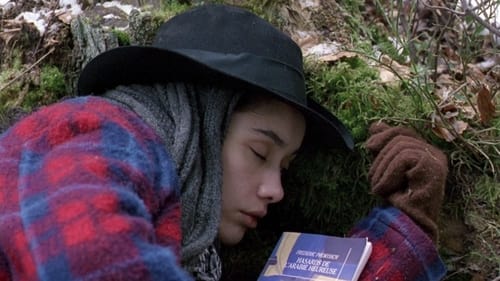
Editor
Episodic film that follows a theater troupe from France attempting to put on a play in Sarajevo. Along their journey they are captured and held in a POW camp, and they call for help from their friends and relations in France.

Director
Episodic film that follows a theater troupe from France attempting to put on a play in Sarajevo. Along their journey they are captured and held in a POW camp, and they call for help from their friends and relations in France.

Writer
Episodic film that follows a theater troupe from France attempting to put on a play in Sarajevo. Along their journey they are captured and held in a POW camp, and they call for help from their friends and relations in France.
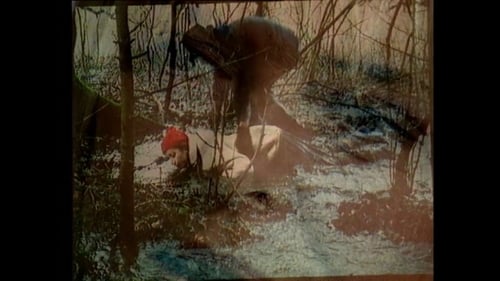
Producer
A short essay on the metamorphosis that art, beauty, love or cinema accomplishes.

Editor
A short essay on the metamorphosis that art, beauty, love or cinema accomplishes.

Screenplay
A short essay on the metamorphosis that art, beauty, love or cinema accomplishes.

Director
A short essay on the metamorphosis that art, beauty, love or cinema accomplishes.

Editor
A reworking of extracts from Andre Malraux, Claude Nuridsany and Marie Perennou, and GK Chesterton.

Producer
A reworking of extracts from Andre Malraux, Claude Nuridsany and Marie Perennou, and GK Chesterton.

Screenplay
A reworking of extracts from Andre Malraux, Claude Nuridsany and Marie Perennou, and GK Chesterton.

(voice)
A reworking of extracts from Andre Malraux, Claude Nuridsany and Marie Perennou, and GK Chesterton.

Director
A reworking of extracts from Andre Malraux, Claude Nuridsany and Marie Perennou, and GK Chesterton.

Director
Experimental short.

Editor
At a lakeside hotel, Michel Piccoli discusses the centennial of cinema with Jean-Luc Godard. Godard asks why should cinema's birthday be celebrated when the history of film is a forgotten subject. Through the remainder of his hotel stay, Piccoli tests Godard's hypothesis.

Himself
At a lakeside hotel, Michel Piccoli discusses the centennial of cinema with Jean-Luc Godard. Godard asks why should cinema's birthday be celebrated when the history of film is a forgotten subject. Through the remainder of his hotel stay, Piccoli tests Godard's hypothesis.

Director
At a lakeside hotel, Michel Piccoli discusses the centennial of cinema with Jean-Luc Godard. Godard asks why should cinema's birthday be celebrated when the history of film is a forgotten subject. Through the remainder of his hotel stay, Piccoli tests Godard's hypothesis.

Editor
Director Jean-Luc Godard reflects in this movie about his place in film history, the interaction of film industry and film as art, as well as the act of creating art.

Producer
Director Jean-Luc Godard reflects in this movie about his place in film history, the interaction of film industry and film as art, as well as the act of creating art.

Self
Director Jean-Luc Godard reflects in this movie about his place in film history, the interaction of film industry and film as art, as well as the act of creating art.

Director
Director Jean-Luc Godard reflects in this movie about his place in film history, the interaction of film industry and film as art, as well as the act of creating art.

Writer
Director Jean-Luc Godard reflects in this movie about his place in film history, the interaction of film industry and film as art, as well as the act of creating art.

Director
A UNICEF-sponsored six-film anthology depicting childhood horrors around the world. "Hassane" - a malnourished child in Niger needs help from the doctors, but village traditions prohibit it. "Liouba" - a child escapes to the forest after a beating by his alcoholic mother, but the games he plays in the forest mirror his troubles at home. "Boy" - a child faces discrimination as the only white student at his school. "Carmelo" - in Bogota a child living on the streets fights to survive. "Oca" - when his twelve year old brother dies free-diving in the Philippines, seven year old Oca must take his place on the job. "L'enfance de l'art" - children living and playing in a war zone are touched by violence.
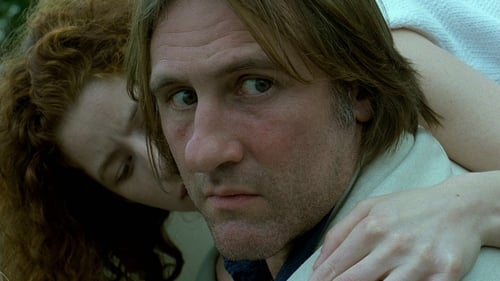
Editor
This complex allegorical tale tells the story of man’s quest for spiritual meaning. When God enters the body of 1980s filmmaker Simon Donnadieu, his wife Rachel realizes that something has gone awry, but chooses to remain faithful to her erratically-behaving husband.

Director
This complex allegorical tale tells the story of man’s quest for spiritual meaning. When God enters the body of 1980s filmmaker Simon Donnadieu, his wife Rachel realizes that something has gone awry, but chooses to remain faithful to her erratically-behaving husband.

Writer
This complex allegorical tale tells the story of man’s quest for spiritual meaning. When God enters the body of 1980s filmmaker Simon Donnadieu, his wife Rachel realizes that something has gone awry, but chooses to remain faithful to her erratically-behaving husband.
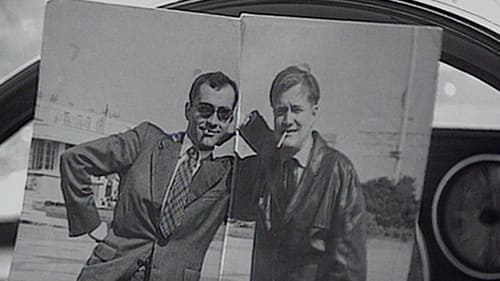
Self (voice) (archive footage)
Claude Ventura's documentary Chambre 12, Hotel de Suede, was made for the French television channel Arte in 1993. Ventura checks into room twelve in the hotel's final week of operation: it is demolished the day after he checks out. Room twelve was one of the principal locations for Jean-Luc Godard's New Wave masterpiece Breathless, and Ventura's documentary investigates the production of Godard's film.
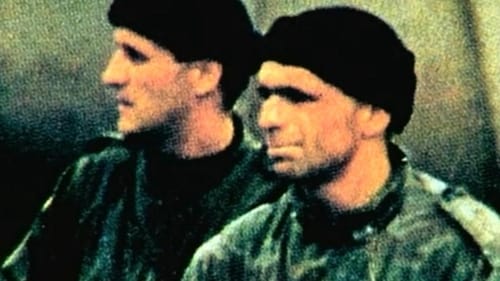
Writer
A short two-minute rumination on the once volatile situation during the period of the Bosnian War presented in the form of a photo-montage with accompanying text.

Editor
A short two-minute rumination on the once volatile situation during the period of the Bosnian War presented in the form of a photo-montage with accompanying text.

Narrator
A short two-minute rumination on the once volatile situation during the period of the Bosnian War presented in the form of a photo-montage with accompanying text.

Director
A short two-minute rumination on the once volatile situation during the period of the Bosnian War presented in the form of a photo-montage with accompanying text.
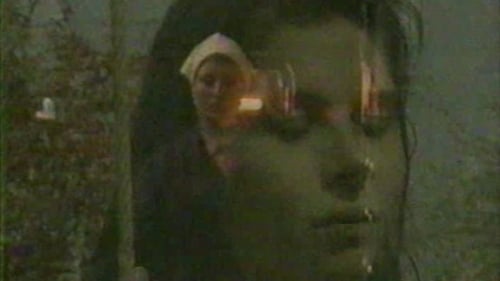
The idiot: Prince Mishkin
A famous French filmmaker is hired by a major Hollywood producer to make a documentary on the state of post-Cold War Russia. The filmmaker, though, subverts the project by stubbornly remaining in France and casting himself as the title character of Dostoyevsky's "The Idiot," offering up a series of typically Godardian musings on art, politics, the nature of images and the future of cinema.

Editor
A famous French filmmaker is hired by a major Hollywood producer to make a documentary on the state of post-Cold War Russia. The filmmaker, though, subverts the project by stubbornly remaining in France and casting himself as the title character of Dostoyevsky's "The Idiot," offering up a series of typically Godardian musings on art, politics, the nature of images and the future of cinema.

Writer
A famous French filmmaker is hired by a major Hollywood producer to make a documentary on the state of post-Cold War Russia. The filmmaker, though, subverts the project by stubbornly remaining in France and casting himself as the title character of Dostoyevsky's "The Idiot," offering up a series of typically Godardian musings on art, politics, the nature of images and the future of cinema.

Director
A famous French filmmaker is hired by a major Hollywood producer to make a documentary on the state of post-Cold War Russia. The filmmaker, though, subverts the project by stubbornly remaining in France and casting himself as the title character of Dostoyevsky's "The Idiot," offering up a series of typically Godardian musings on art, politics, the nature of images and the future of cinema.

Thanks
A fearless Antigone, refusing to allow the dishonored body of her murdered brother Polynices to be devoured by vultures and dogs, defies the Thebian tyrant Creon by burying him.

Self
An intimate window into one of the great movements in film history that brought about an evolution in the art of cinema. The documentary portrays the movement with insight on the lives and works of Jean-Luc Godard, François Truffaut and other principal players in the New Wave.

Director
Children living and playing in a war zone are touched by violence. Part of How Are the Kids? (1990), a UNICEF-sponsored six-film anthology depicting childhood horrors around the world.

Director
Contre l'Oubli (Against Oblivion) is a compilation of 30 French filmmakers, Alain Resnais and Jean Luc Godard among them, who use film to make a plea on behalf of a political prisoner. Jean Luc Godard and Anne Marie Mieville's film concerns the plight of Thomas Wanggai, West Papuan activist who has since died in prison. The short films were commissioned by Amnesty International.
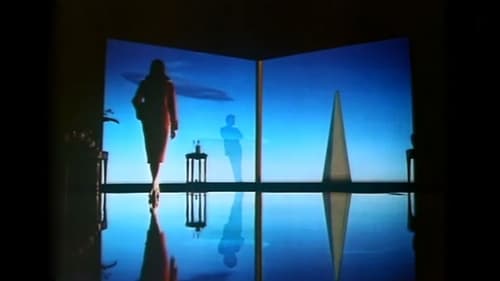
Director
A collection of European T.V. commercials directed by a variety of well-known directors from across Europe and the U.S. Compiled and produced by Jean-Marie Boursicot.
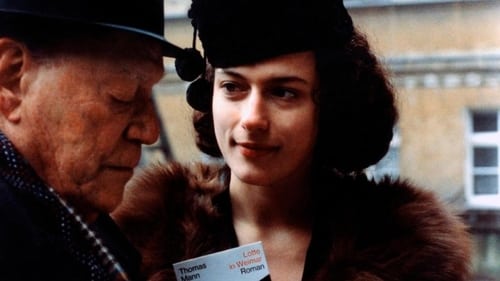
Editor
The supremely world-weary Lemmy Caution, last seen in Godard's "Alphaville" (France/1965), has several strange encounters while trying to make his way from the former East Germany to "the west."

Writer
The supremely world-weary Lemmy Caution, last seen in Godard's "Alphaville" (France/1965), has several strange encounters while trying to make his way from the former East Germany to "the west."

Director
The supremely world-weary Lemmy Caution, last seen in Godard's "Alphaville" (France/1965), has several strange encounters while trying to make his way from the former East Germany to "the west."

Director
A video letter composed for Amnesty International's 'Lest We Forget' series.
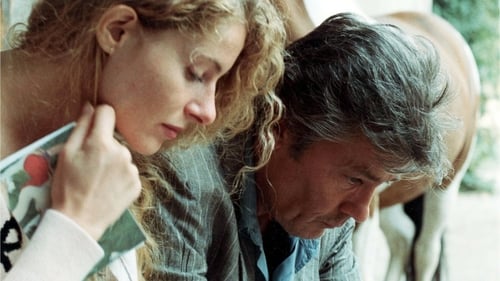
Editor
Composed entirely of literary quotations from many different sources and from several historical periods, the loose narrative concerns a drifter found by a rich woman who soon falls in love with him. A drowning accident takes place and the drifter dies, but some time later he reappears in the woman’s life looking for a job. Or could it be the man’s twin brother?

Writer
Composed entirely of literary quotations from many different sources and from several historical periods, the loose narrative concerns a drifter found by a rich woman who soon falls in love with him. A drowning accident takes place and the drifter dies, but some time later he reappears in the woman’s life looking for a job. Or could it be the man’s twin brother?

Director
Composed entirely of literary quotations from many different sources and from several historical periods, the loose narrative concerns a drifter found by a rich woman who soon falls in love with him. A drowning accident takes place and the drifter dies, but some time later he reappears in the woman’s life looking for a job. Or could it be the man’s twin brother?

Writer
A very personal look at the history of cinema directed, written and edited by Jean-Luc Godard in his Swiss residence in Rolle for ten years (1988-98); a monumental collage, constructed from film fragments, texts and quotations, photos and paintings, music and sound, and diverse readings; a critical, beautiful and melancholic vision of cinematographic art.

Editor
A very personal look at the history of cinema directed, written and edited by Jean-Luc Godard in his Swiss residence in Rolle for ten years (1988-98); a monumental collage, constructed from film fragments, texts and quotations, photos and paintings, music and sound, and diverse readings; a critical, beautiful and melancholic vision of cinematographic art.

Self - Filmmaker / Narrator (voice)
A very personal look at the history of cinema directed, written and edited by Jean-Luc Godard in his Swiss residence in Rolle for ten years (1988-98); a monumental collage, constructed from film fragments, texts and quotations, photos and paintings, music and sound, and diverse readings; a critical, beautiful and melancholic vision of cinematographic art.

Writer
A very personal look at the history of cinema directed, written and edited by Jean-Luc Godard in his Swiss residence in Rolle for ten years (1988-98); a monumental collage, constructed from film fragments, texts and quotations, photos and paintings, music and sound, and diverse readings; a critical, beautiful and melancholic vision of cinematographic art.

Editor
A very personal look at the history of cinema directed, written and edited by Jean-Luc Godard in his Swiss residence in Rolle for ten years (1988-98); a monumental collage, constructed from film fragments, texts and quotations, photos and paintings, music and sound, and diverse readings; a critical, beautiful and melancholic vision of cinematographic art.

Self - Filmmaker / Narrator (voice)
A very personal look at the history of cinema directed, written and edited by Jean-Luc Godard in his Swiss residence in Rolle for ten years (1988-98); a monumental collage, constructed from film fragments, texts and quotations, photos and paintings, music and sound, and diverse readings; a critical, beautiful and melancholic vision of cinematographic art.

Director
A very personal look at the history of cinema directed, written and edited by Jean-Luc Godard in his Swiss residence in Rolle for ten years (1988-98); a monumental collage, constructed from film fragments, texts and quotations, photos and paintings, music and sound, and diverse readings; a critical, beautiful and melancholic vision of cinematographic art.

Director
A very personal look at the history of cinema directed, written and edited by Jean-Luc Godard in his Swiss residence in Rolle for ten years (1988-98); a monumental collage, constructed from film fragments, texts and quotations, photos and paintings, music and sound, and diverse readings; a critical, beautiful and melancholic vision of cinematographic art.

Nathanael, the 2000 year-old robot
A daring deconstruction of consumerist behavior featuring a robot and Miss Clio Darty, with a voiceover by Godard and Anne-Marie Miéville, this philosophical "report," like so many of Godard's commissions, was rejected by its funders.

Director
A daring deconstruction of consumerist behavior featuring a robot and Miss Clio Darty, with a voiceover by Godard and Anne-Marie Miéville, this philosophical "report," like so many of Godard's commissions, was rejected by its funders.

Writer
Godard blends elements of literature, cinema and other artistic medias from different historical periods in order to make a stance on how words can be subverted and manipulated to many different contexts, sometimes bearing a similar significance to the original material or even creating an alternate context.

Director
Godard blends elements of literature, cinema and other artistic medias from different historical periods in order to make a stance on how words can be subverted and manipulated to many different contexts, sometimes bearing a similar significance to the original material or even creating an alternate context.

Director
In 1988, Figaro magazine asked a few famous directors to direct a series of short movies to celebrate the 10 years of the revue. The movies have been released for the French revolution bicentenary. Includes: Werner Herzog's Les Gaulois, David Lynch's The Cowboy and the Frenchman, Andrzej Wajda's Proust contre la déchéance, Luigi Comencini's Pèlerinage à Agen, Jean-Luc Godard's Le dernier mot.

Writer
A rare short done in much of the same vein of “Puissance de la Parole”, where there is no shortage of cross-dissolve and rapid montage effects. Here, the sources are between fashion clips, street footage, and a number of paintings, to which Godard narrates the implications of what is being seen.

Director
A rare short done in much of the same vein of “Puissance de la Parole”, where there is no shortage of cross-dissolve and rapid montage effects. Here, the sources are between fashion clips, street footage, and a number of paintings, to which Godard narrates the implications of what is being seen.

Director
A short commissioned piece on 'famous last words' set in WWII.

Director
Second series of commercial spots made for Marithé and François Girbaud.
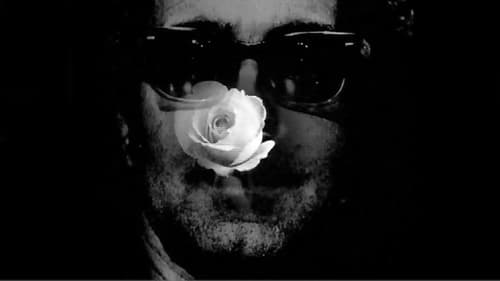
Director
Jean-Luc Godard interviewed by French Critic Serge Daney at the time when Godard was working on his project "Histoire(s) du cinéma".

Self
Jean-Luc Godard interviewed by French Critic Serge Daney at the time when Godard was working on his project "Histoire(s) du cinéma".
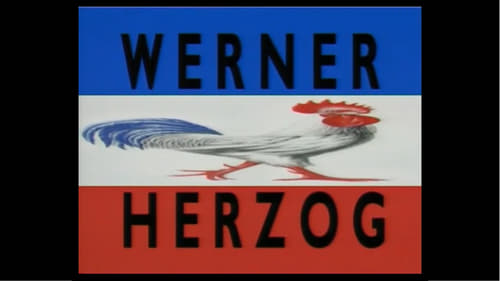
Writer
Two segments make up this short film. The first portion called “The French” has two men taste testing some delicious wine, and the other, titled “The Gauls”, is of men playing rugby. This short by Werner Herzog is part of the “The French as Seen By…” series. It was initiated and sponsored by the newspaper Le Figaro, as part of the 1988 celebration of the tenth anniversary of its magazine section.

Editor
This film is made up several sketches in which certain actors play several real or fictional roles to a background of rock music. The lead character, played by Godard himself, is an annoyingly perfectionist film-maker determined to wring every last drop of the finest performance possible from his stars.

Producer
This film is made up several sketches in which certain actors play several real or fictional roles to a background of rock music. The lead character, played by Godard himself, is an annoyingly perfectionist film-maker determined to wring every last drop of the finest performance possible from his stars.

Screenplay
This film is made up several sketches in which certain actors play several real or fictional roles to a background of rock music. The lead character, played by Godard himself, is an annoyingly perfectionist film-maker determined to wring every last drop of the finest performance possible from his stars.

Idiot / Prince
This film is made up several sketches in which certain actors play several real or fictional roles to a background of rock music. The lead character, played by Godard himself, is an annoyingly perfectionist film-maker determined to wring every last drop of the finest performance possible from his stars.

Director
This film is made up several sketches in which certain actors play several real or fictional roles to a background of rock music. The lead character, played by Godard himself, is an annoyingly perfectionist film-maker determined to wring every last drop of the finest performance possible from his stars.
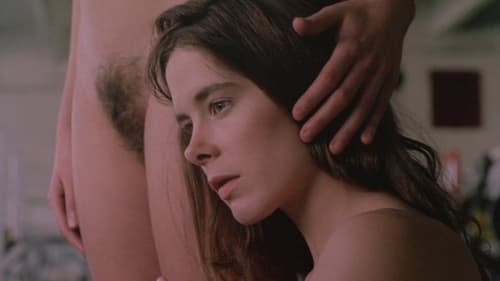
Director
In 1986, the director and producer Don Boyd approached ten of the world’s greatest directors and invited them to make a short film set to an operatic aria of their choice. Together, their contributions formed the movie 'Aria'. Here, the legendary French filmmaker Jean-Luc Godard, director of 'Breathless' and 'Pierrot Le Fou', brings his own unique interpretaton to Jean-Baptiste Lully's opera 'Armide'
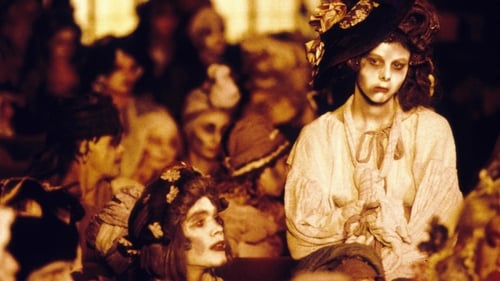
Director
Ten short pieces directed by ten different directors, including Ken Russell, Jean-Luc Godard, Robert Altman, Bruce Beresford, and Nicolas Roeg. Each short uses an aria as soundtrack/sound (Vivaldi, Bach, Wagner), and is an interpretation of the particular aria.
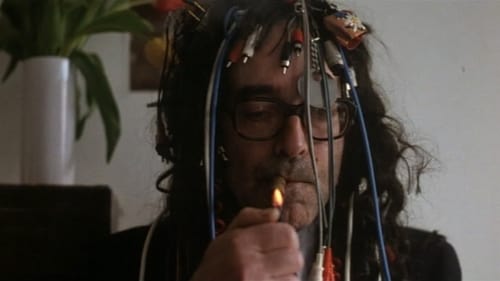
Editor
A descendant of Shakespeare tries to restore his plays in a world rebuilding itself after the Chernobyl catastrophe obliterates most of human civilization.

Director
A descendant of Shakespeare tries to restore his plays in a world rebuilding itself after the Chernobyl catastrophe obliterates most of human civilization.

Professor Pluggy (uncredited)
A descendant of Shakespeare tries to restore his plays in a world rebuilding itself after the Chernobyl catastrophe obliterates most of human civilization.

Writer
A descendant of Shakespeare tries to restore his plays in a world rebuilding itself after the Chernobyl catastrophe obliterates most of human civilization.

Director
First series of commercial spots made for Marithé and François Girbaud.
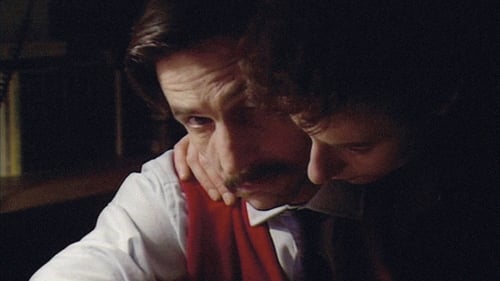
Writer
An absurdly brutal and minimalist examination of the desperate search for financial backing by two small-time filmmakers, 'Rise and Fall' is knowingly self-referential, sad, and appropriately enough, a film shot on a miniscule budget in 16mm. Based on a novel by James Hadley Chase, with script by Jean-Luc Godard.

An absurdly brutal and minimalist examination of the desperate search for financial backing by two small-time filmmakers, 'Rise and Fall' is knowingly self-referential, sad, and appropriately enough, a film shot on a miniscule budget in 16mm. Based on a novel by James Hadley Chase, with script by Jean-Luc Godard.

Director
An absurdly brutal and minimalist examination of the desperate search for financial backing by two small-time filmmakers, 'Rise and Fall' is knowingly self-referential, sad, and appropriately enough, a film shot on a miniscule budget in 16mm. Based on a novel by James Hadley Chase, with script by Jean-Luc Godard.

Himself (Archive photos)
Jean-Pierre Gorin interacts with a club of model railroad train enthusiasts and his mentor, artist/writer Manny Farber.
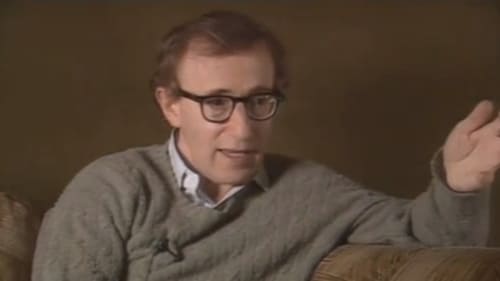
Editor
Revolutionary French New Wave director Jean-Luc Godard conducts a twenty-five minute interview with influential and acclaimed American director Woody Allen on the cultural radiation, the ubiquity and significance of Television, and how Television compares with cinema as a medium and form of expression.

Self
Revolutionary French New Wave director Jean-Luc Godard conducts a twenty-five minute interview with influential and acclaimed American director Woody Allen on the cultural radiation, the ubiquity and significance of Television, and how Television compares with cinema as a medium and form of expression.

Director
Revolutionary French New Wave director Jean-Luc Godard conducts a twenty-five minute interview with influential and acclaimed American director Woody Allen on the cultural radiation, the ubiquity and significance of Television, and how Television compares with cinema as a medium and form of expression.

Executive Producer
Anne-Marie Miéville, frequent collaborator of Jean-Luc Godard, made this partner piece to Godard's own 'Je vous salue, Marie'. Marie, eleven years old, is experiencing difficult times. Her parents will separate. The perception of her universe is profoundly disturbed. This exacting portrait of a child immersed in her books, music and dancing casts a dispassionate yet touching eye on the girl's reaction to the new upheaval in her life.
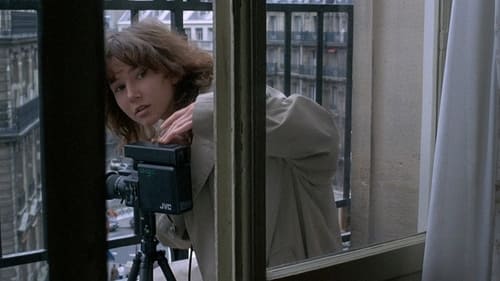
Screenplay
Emile Chenal and his wife, Françoise, leaned on boxing manager Jim Fox Warner to cough up the considerable sum of money that he owes them, with both the police and the mob circling the situation. In the same hotel, Inspector Neveu looks into a murder that took place years before, and his storyline overlaps with the arc of the Chenals.

Director
Emile Chenal and his wife, Françoise, leaned on boxing manager Jim Fox Warner to cough up the considerable sum of money that he owes them, with both the police and the mob circling the situation. In the same hotel, Inspector Neveu looks into a murder that took place years before, and his storyline overlaps with the arc of the Chenals.

Jean-Luc Godard and Philippe Sollers meet in Paris to discuss Godard's film Je vous salue, Marie, and many other things.
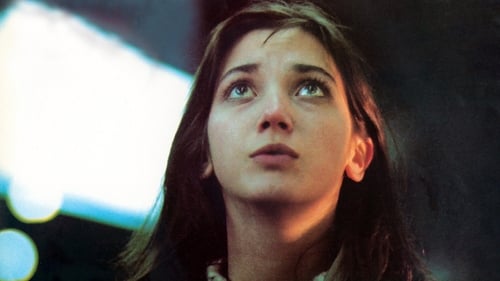
Writer
A college student gets pregnant without having intercourse, affecting people close and unrelated to her in different ways.

Director
A college student gets pregnant without having intercourse, affecting people close and unrelated to her in different ways.
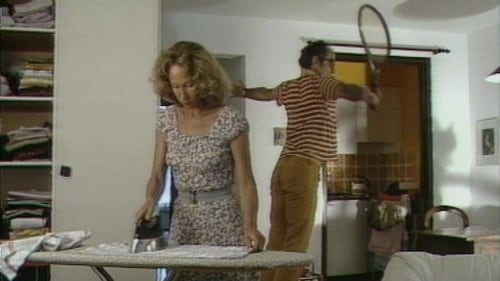
Editor
Jean-Luc Godard and Anne-Marie Miéville talk about their films, while doing everyday tasks around their house.

Writer
Jean-Luc Godard and Anne-Marie Miéville talk about their films, while doing everyday tasks around their house.

Director
Jean-Luc Godard and Anne-Marie Miéville talk about their films, while doing everyday tasks around their house.

Himself
Jean-Luc Godard and Anne-Marie Miéville talk about their films, while doing everyday tasks around their house.

Director
The protagonist is Carmen X, a female member of a terrorist gang. She asks her uncle Jean, a washed-up film director if she can borrow his beachside house to make a film with some friends, but they are in fact planning to rob a bank. During the robbery she falls in love with a security guard. The film intercuts between Carmen's escape with the guard, her uncle's attempt to make a comeback film, and a string quartet attempting to perform Beethoven.

Uncle Jeannot
The protagonist is Carmen X, a female member of a terrorist gang. She asks her uncle Jean, a washed-up film director if she can borrow his beachside house to make a film with some friends, but they are in fact planning to rob a bank. During the robbery she falls in love with a security guard. The film intercuts between Carmen's escape with the guard, her uncle's attempt to make a comeback film, and a string quartet attempting to perform Beethoven.

Self
Notes on the inception and making of Hail Mary.

Director
Notes on the inception and making of Hail Mary.
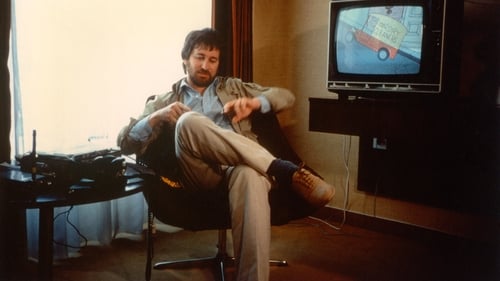
Self
During the 1982 Cannes Film Festival, Wenders asks a number of global film directors to, one at a time, go into a hotel room, turn on the camera and answer a simple question: "What is the future of cinema?"
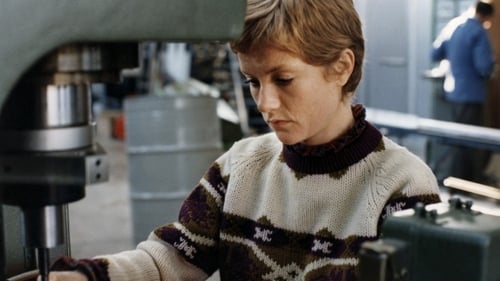
Editor
While shooting a film, the director becomes interested in the unfolding struggle of a young factory worker that has been laid off by a boss who did not like her union activities.

Writer
While shooting a film, the director becomes interested in the unfolding struggle of a young factory worker that has been laid off by a boss who did not like her union activities.

Director
While shooting a film, the director becomes interested in the unfolding struggle of a young factory worker that has been laid off by a boss who did not like her union activities.

Director
Notes on the movie Passion

Director
1981: at the moment the left won power, French television commissioned Godard to make a film on the theme of change. Like Lettre à Freddy Buache, this film is born of the impossibility of carrying out the commission. For the space where change appears is not the image but the gap between images.

Narrator / Self
Godard constructs a lyrical study of the cinematic and creative process by deconstructing the story of his 1982 film Passion. “I didn’t want to write the script,” he states, “I wanted to see it.” Positioning himself in a video editing suite in front of a white film screen that evokes for him the “famous blank page of Mallarmé,” Godard uses video as a sketchbook with which to reconceive the film. The result is a philosophical, often humorous rumination on the desire and labor that inform the conceptual and image making process of the cinema.

Director
Godard constructs a lyrical study of the cinematic and creative process by deconstructing the story of his 1982 film Passion. “I didn’t want to write the script,” he states, “I wanted to see it.” Positioning himself in a video editing suite in front of a white film screen that evokes for him the “famous blank page of Mallarmé,” Godard uses video as a sketchbook with which to reconceive the film. The result is a philosophical, often humorous rumination on the desire and labor that inform the conceptual and image making process of the cinema.
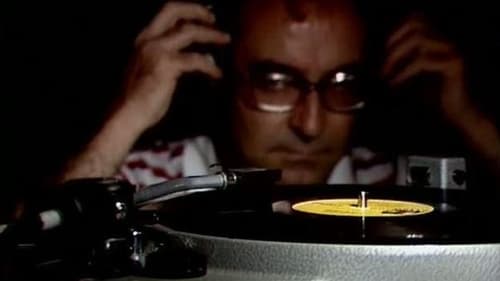
Editor
This short film is Godard’s message to the people of Lausanne, specifically journalist and critic Freddy Buache, addressing his reasons why he will not make a film about their town’s 500th anniversary. Rather than cynical or defensive, Godard's bemused narration of the footage of Lausanne is imaginative and even playful, a rumination on cinema's possibilities.

Himself
This short film is Godard’s message to the people of Lausanne, specifically journalist and critic Freddy Buache, addressing his reasons why he will not make a film about their town’s 500th anniversary. Rather than cynical or defensive, Godard's bemused narration of the footage of Lausanne is imaginative and even playful, a rumination on cinema's possibilities.

Director
This short film is Godard’s message to the people of Lausanne, specifically journalist and critic Freddy Buache, addressing his reasons why he will not make a film about their town’s 500th anniversary. Rather than cynical or defensive, Godard's bemused narration of the footage of Lausanne is imaginative and even playful, a rumination on cinema's possibilities.

Writer
This short film is Godard’s message to the people of Lausanne, specifically journalist and critic Freddy Buache, addressing his reasons why he will not make a film about their town’s 500th anniversary. Rather than cynical or defensive, Godard's bemused narration of the footage of Lausanne is imaginative and even playful, a rumination on cinema's possibilities.

N°106
Reel 11 of Gérard Courant's on-going Cinematon series.

Self
The co-founder of the Gamma press agency, Raymond Depardon, created this documentary of press photographers in Paris and their subjects by following the photographers around for one month, in October, 1980. In-between long hours waiting for a celebrity to emerge from a restaurant or a hotel, boredom immediately switches to fast action as the cameras click and roll when the person appears. The reaction to the gaggle of photographers is as varied as the people they often literally chase all around town. While some of the celebrities, such as Jacques Chirac who was mayor of Paris at the time, are perceived as comical caricatures, others are shown simply going about ordinary pursuits - including Catherine Deneuve, Gene Kelly, and Jean-Luc Godard.

Director
Godard experimental film with montages combining "Sauve qui peut (la vie) and other films by other filmmakers

Self
A televisual journey guided by Jean-Luc Godard inside his film Sauve qui peut (la vie), incorporating filmed conversations between him and Isabelle Huppert and the film critic Christian Defaye.

Editor
A televisual journey guided by Jean-Luc Godard inside his film Sauve qui peut (la vie), incorporating filmed conversations between him and Isabelle Huppert and the film critic Christian Defaye.

Writer
A televisual journey guided by Jean-Luc Godard inside his film Sauve qui peut (la vie), incorporating filmed conversations between him and Isabelle Huppert and the film critic Christian Defaye.

Director
A televisual journey guided by Jean-Luc Godard inside his film Sauve qui peut (la vie), incorporating filmed conversations between him and Isabelle Huppert and the film critic Christian Defaye.

Screenplay
A video derived from footage Godard kept from his 1981 visit to Francis Ford Coppola's Zoetrope Studios at the time he was making Passion.

Director
A video derived from footage Godard kept from his 1981 visit to Francis Ford Coppola's Zoetrope Studios at the time he was making Passion.
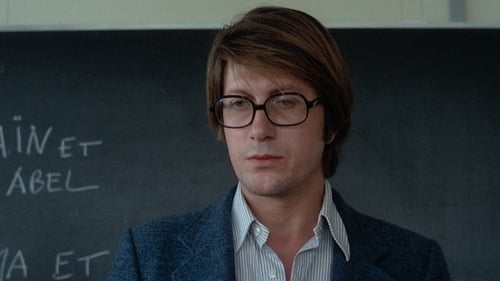
Editor
A look at the sexual and professional lives of three people—a television director, his ex-girlfriend, and a sex worker.

Producer
A look at the sexual and professional lives of three people—a television director, his ex-girlfriend, and a sex worker.

Director
A look at the sexual and professional lives of three people—a television director, his ex-girlfriend, and a sex worker.

As Himself
The famous French film director Jean-Luc Godard is interviewed by British film theorist Peter Wollen and the editor of Framework Don Ranveaud. He talks of the developments in his work, the change in style epitomized by his most recent film, Sauve Qui Peut, his work with Francis Ford Coppola and the relations between his previous films and the new one. He also discusses his radical method of scriptwriting and the critical responses to his latest film.

Self (archive footage)
Explores the complex relationship between the spirit, body, and mind. The film is a nightmare with closed eyes because it counts among the most terrible moments of my life, my second exile, which lasted a very long time. Inspired by an ancient Hindu legend.

Director
Jean-Luc Godard proposes a diary of his creative process. Looking at photos of three actors, Jacques Dutronc, Isabelle Huppert, and Miou-Miou, who were previously cast to play in "Sauve qui peut (la vie)," Godard speaks about great image makers: Dreyer and Wim Wenders, the painters Edward Hopper and Pierre Bonnard.
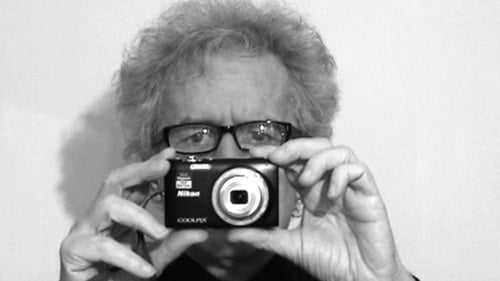
N°106
Cinématon is a 156-hour long experimental film by French director Gérard Courant. It was the longest film ever released until 2011. Composed over 36 years from 1978 until 2006, it consists of a series of over 2,821 silent vignettes (cinématons), each 3 minutes and 25 seconds long, of various celebrities, artists, journalists and friends of the director, each doing whatever they want for the allotted time. Subjects of the film include directors Barbet Schroeder, Nagisa Oshima, Volker Schlöndorff, Ken Loach, Benjamin Cuq, Youssef Chahine, Wim Wenders, Joseph Losey, Jean-Luc Godard, Samuel Fuller and Terry Gilliam, chess grandmaster Joël Lautier, and actors Roberto Benigni, Stéphane Audran, Julie Delpy and Lesley Chatterley. Gilliam is featured eating a 100-franc note, while Fuller smokes a cigar. Courant's favourite subject was a 7-month-old baby. The film was screened in its then-entirety in Avignon in November 2009 and was screened in Redondo Beach, CA on April 9, 2010.

Director
An anti-music video for a Patrick Juvet song

In this astonishing twelve-part project for and about television — the title of which refers to a 19th-century French primer Le tour de la France par deux enfants — Godard and Miéville take a detour through the everyday lives of two children in contemporary France.

Director
In this astonishing twelve-part project for and about television — the title of which refers to a 19th-century French primer Le tour de la France par deux enfants — Godard and Miéville take a detour through the everyday lives of two children in contemporary France.

Writer
Here and Elsewhere takes its name from the contrasting footage it shows of the fedayeen and of a French family watching television at home. Originally shot by the Dziga Vertov Group as a film on Palestinian freedom fighters, Godard later reworked the material alongside Anne-Marie Miéville.

Narrator (voice)
Here and Elsewhere takes its name from the contrasting footage it shows of the fedayeen and of a French family watching television at home. Originally shot by the Dziga Vertov Group as a film on Palestinian freedom fighters, Godard later reworked the material alongside Anne-Marie Miéville.

Producer
Here and Elsewhere takes its name from the contrasting footage it shows of the fedayeen and of a French family watching television at home. Originally shot by the Dziga Vertov Group as a film on Palestinian freedom fighters, Godard later reworked the material alongside Anne-Marie Miéville.

Director
Here and Elsewhere takes its name from the contrasting footage it shows of the fedayeen and of a French family watching television at home. Originally shot by the Dziga Vertov Group as a film on Palestinian freedom fighters, Godard later reworked the material alongside Anne-Marie Miéville.
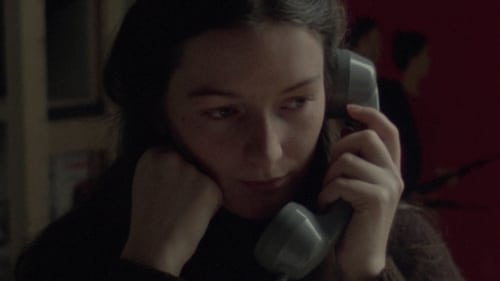
Producer
A film about politics and the media, in which two workers in a newspaper plant attempt to make a film.

Writer
A film about politics and the media, in which two workers in a newspaper plant attempt to make a film.

Director
A film about politics and the media, in which two workers in a newspaper plant attempt to make a film.

A film about politics and the media, in which two workers in a newspaper plant attempt to make a film.

The title and subtitle of this French miniseries are “Six Times Two; Over and under the media”. The “six” refers to the fact that there are six episodes; the “two” has a double meaning.

Director
The title and subtitle of this French miniseries are “Six Times Two; Over and under the media”. The “six” refers to the fact that there are six episodes; the “two” has a double meaning.
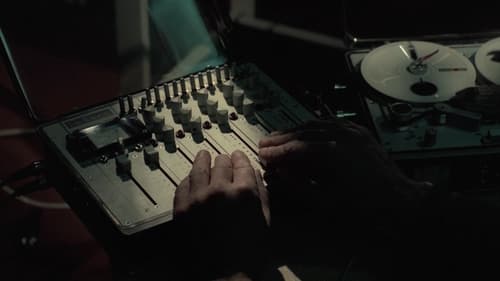
Himself (uncredited)
Jean-Luc Godard mixes video and film in his Grenoble studio, discussing how he secured funding for the film. The action unfolds on two monitors, as a young working-class couple lives in a claustrophobic, high-rise apartment complex and marital discord is set off by the wife’s infidelity.

Writer
Jean-Luc Godard mixes video and film in his Grenoble studio, discussing how he secured funding for the film. The action unfolds on two monitors, as a young working-class couple lives in a claustrophobic, high-rise apartment complex and marital discord is set off by the wife’s infidelity.

Director
Jean-Luc Godard mixes video and film in his Grenoble studio, discussing how he secured funding for the film. The action unfolds on two monitors, as a young working-class couple lives in a claustrophobic, high-rise apartment complex and marital discord is set off by the wife’s infidelity.

Narrator (voice) (uncredited)
The film's subject is a photograph of Jane Fonda visiting Hanoi during the Vietnam War. It asks what the position of the intellectual should be in the class struggle and points out the irony of Jane Fonda's participation in the photo shoot, which was staged.

Writer
The film's subject is a photograph of Jane Fonda visiting Hanoi during the Vietnam War. It asks what the position of the intellectual should be in the class struggle and points out the irony of Jane Fonda's participation in the photo shoot, which was staged.

Director
The film's subject is a photograph of Jane Fonda visiting Hanoi during the Vietnam War. It asks what the position of the intellectual should be in the class struggle and points out the irony of Jane Fonda's participation in the photo shoot, which was staged.
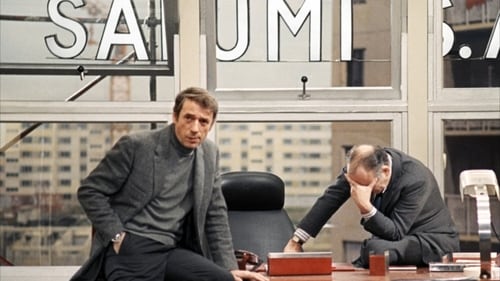
Director
A strike at a French sausage factory contributes to the estrangement of a married filmmaker and his reporter wife.

Screenplay
A strike at a French sausage factory contributes to the estrangement of a married filmmaker and his reporter wife.
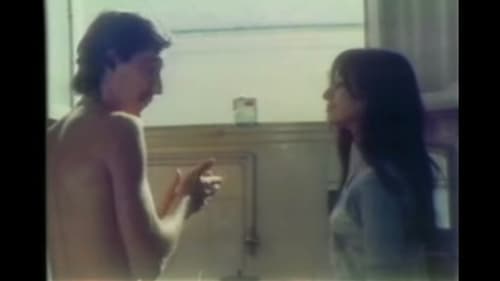
Editor
A couple argue loudly during a news broadcast about Palestine as the man shaves.

Writer
A couple argue loudly during a news broadcast about Palestine as the man shaves.

Director
A couple argue loudly during a news broadcast about Palestine as the man shaves.

Self
Lighter and livelier than the films Jean-Luc Godard had made in France, his U.S. collaboration with Direct Cinema documentarian D. A. Pennebaker was meant to be One A.M., as in “one American movie”; but Godard quit the project and the U.S., where to his dismay he discovered that revolution wasn’t imminent, and Pennebaker edited Godard’s material, to which he and Richard Leacock even added a bit more, releasing the result as One P.M., as in “one parallel movie.” It’s a stunning mixture of cinéma-vérité, political theater, and interviews of key sixties figures.

Director
Lighter and livelier than the films Jean-Luc Godard had made in France, his U.S. collaboration with Direct Cinema documentarian D. A. Pennebaker was meant to be One A.M., as in “one American movie”; but Godard quit the project and the U.S., where to his dismay he discovered that revolution wasn’t imminent, and Pennebaker edited Godard’s material, to which he and Richard Leacock even added a bit more, releasing the result as One P.M., as in “one parallel movie.” It’s a stunning mixture of cinéma-vérité, political theater, and interviews of key sixties figures.
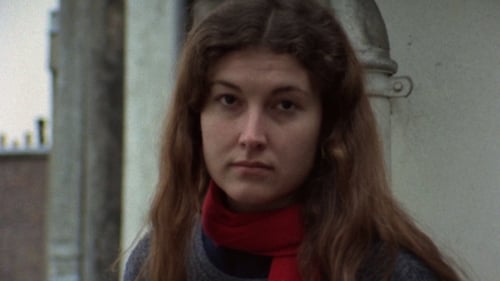
Editor
The film reveals how and why a supposedly revolutionary Italian girl has in fact fallen prey to bourgeois ideology.

Writer
The film reveals how and why a supposedly revolutionary Italian girl has in fact fallen prey to bourgeois ideology.

Director
The film reveals how and why a supposedly revolutionary Italian girl has in fact fallen prey to bourgeois ideology.

Director of Photography
Jean-Luc Godard's and Jean-Pierre Gorin's interpretation of the Chicago Eight / Chicago Seven trial, which followed the 1968 Democratic National Convention protest activities. Judge Hoffman becomes the character Judge Himmler (played by Ernest Menzer) and the defendants become a microcosms of the French Revolution.

Editor
Jean-Luc Godard's and Jean-Pierre Gorin's interpretation of the Chicago Eight / Chicago Seven trial, which followed the 1968 Democratic National Convention protest activities. Judge Hoffman becomes the character Judge Himmler (played by Ernest Menzer) and the defendants become a microcosms of the French Revolution.

Writer
Jean-Luc Godard's and Jean-Pierre Gorin's interpretation of the Chicago Eight / Chicago Seven trial, which followed the 1968 Democratic National Convention protest activities. Judge Hoffman becomes the character Judge Himmler (played by Ernest Menzer) and the defendants become a microcosms of the French Revolution.

Vladimir Lenin (uncredited)
Jean-Luc Godard's and Jean-Pierre Gorin's interpretation of the Chicago Eight / Chicago Seven trial, which followed the 1968 Democratic National Convention protest activities. Judge Hoffman becomes the character Judge Himmler (played by Ernest Menzer) and the defendants become a microcosms of the French Revolution.

Director
Jean-Luc Godard's and Jean-Pierre Gorin's interpretation of the Chicago Eight / Chicago Seven trial, which followed the 1968 Democratic National Convention protest activities. Judge Hoffman becomes the character Judge Himmler (played by Ernest Menzer) and the defendants become a microcosms of the French Revolution.

Editor
A politically oriented film in which images suggestive of a mock western are accompanied by an attack on all cinematic conventions to date and a debate on the nature and possibility of revolutionary cinema.

(uncredited)
A politically oriented film in which images suggestive of a mock western are accompanied by an attack on all cinematic conventions to date and a debate on the nature and possibility of revolutionary cinema.

Writer
A politically oriented film in which images suggestive of a mock western are accompanied by an attack on all cinematic conventions to date and a debate on the nature and possibility of revolutionary cinema.

Director
A politically oriented film in which images suggestive of a mock western are accompanied by an attack on all cinematic conventions to date and a debate on the nature and possibility of revolutionary cinema.
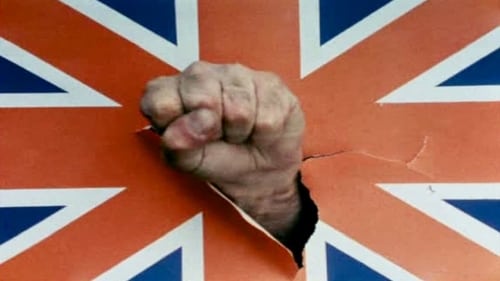
Writer
Jean-Luc Godard brings his firebrand political cinema to the UK, exploring the revolutionary signals in late '60s British society. Constructed as a montage of various disconnected political acts (in line with Godard's then appropriation of Soviet director Dziga Vertov's agitprop techniques), it combines a diverse range of footage, from students discussing The Beatles to the production line at the MG factory in Oxfordshire, burnished with onscreen political sloganeering.
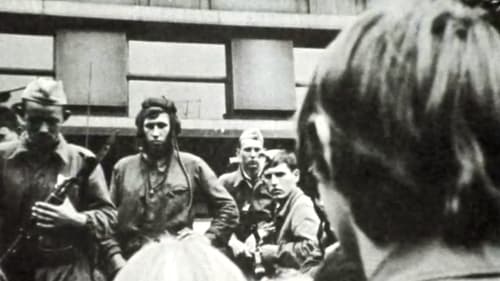
(voice)
Filmed clandestinely in Czechoslovakia on 16mm. It's one of the films Godard made with the Groupe Dziga Vertov - a Marxist film about the political situation after the '68 revolution.

Editor
Filmed clandestinely in Czechoslovakia on 16mm. It's one of the films Godard made with the Groupe Dziga Vertov - a Marxist film about the political situation after the '68 revolution.

Writer
Filmed clandestinely in Czechoslovakia on 16mm. It's one of the films Godard made with the Groupe Dziga Vertov - a Marxist film about the political situation after the '68 revolution.

Director
Filmed clandestinely in Czechoslovakia on 16mm. It's one of the films Godard made with the Groupe Dziga Vertov - a Marxist film about the political situation after the '68 revolution.

Director
Jean-Luc Godard brings his firebrand political cinema to the UK, exploring the revolutionary signals in late '60s British society. Constructed as a montage of various disconnected political acts (in line with Godard's then appropriation of Soviet director Dziga Vertov's agitprop techniques), it combines a diverse range of footage, from students discussing The Beatles to the production line at the MG factory in Oxfordshire, burnished with onscreen political sloganeering.
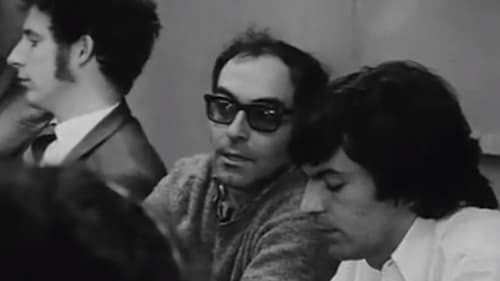
Himself
Spring 1970: Godard and Gorin, on the road, visiting colleges, speaking with Andrew Sarris, and explaining, through illustrated notebooks, their newest Dziga Vertov Group project, a film on Palestine.

Director
Night after night, not long before dawn, two young adults, Patricia and Emile, meet on a sound stage to discuss learning, discourse, and the path to revolution. Scenes of Paris's student revolt, the Vietnam War, and other events of the late 1960s, along with posters, photographs, and cartoons, are backdrops to their words. Words themselves are often Patricia and Emile's subject, as are images, sounds, and juxtapositions.

Narrator (voice)
Night after night, not long before dawn, two young adults, Patricia and Emile, meet on a sound stage to discuss learning, discourse, and the path to revolution. Scenes of Paris's student revolt, the Vietnam War, and other events of the late 1960s, along with posters, photographs, and cartoons, are backdrops to their words. Words themselves are often Patricia and Emile's subject, as are images, sounds, and juxtapositions.

Writer
Night after night, not long before dawn, two young adults, Patricia and Emile, meet on a sound stage to discuss learning, discourse, and the path to revolution. Scenes of Paris's student revolt, the Vietnam War, and other events of the late 1960s, along with posters, photographs, and cartoons, are backdrops to their words. Words themselves are often Patricia and Emile's subject, as are images, sounds, and juxtapositions.
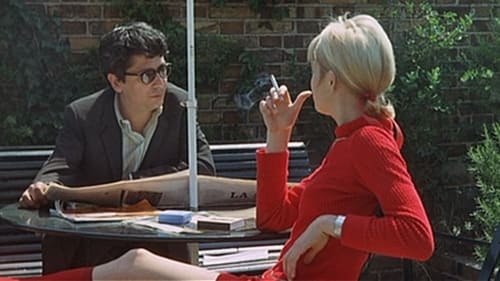
Director
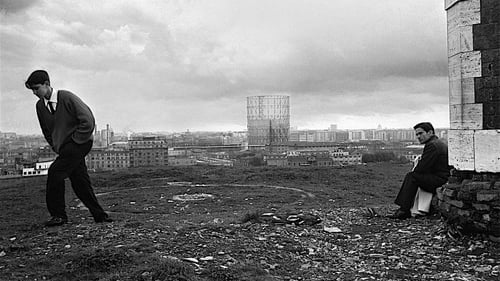
Writer
Five short stories with contemporary settings. In New York, people are indifferent to derelicts sleeping on sidewalks, to a woman's assault in front of an apartment building, and to a couple injured in a car crash. A man, stripped of his identity, dies in bed with actors expressing his agony. A cheerful, innocent young man walking a city street in a time of war pays a price for this innocence. A couple talks about cinema while it watches another couple talk of love and truth on the eve of one character's return to Cuba. Striking students take over a university classroom; an argument follows about revolution or incremental change.

Director
Five short stories with contemporary settings. In New York, people are indifferent to derelicts sleeping on sidewalks, to a woman's assault in front of an apartment building, and to a couple injured in a car crash. A man, stripped of his identity, dies in bed with actors expressing his agony. A cheerful, innocent young man walking a city street in a time of war pays a price for this innocence. A couple talks about cinema while it watches another couple talk of love and truth on the eve of one character's return to Cuba. Striking students take over a university classroom; an argument follows about revolution or incremental change.

Self (uncredited)
A young, unscrupulous director hires an actress and uses the story she tells him of her life to write his screenplay, but fires her and entrusts the leading role to someone else.

Himself
Documentary about Jean-Luc Godard filming Sympathy for the Devil with The Rolling Stones.
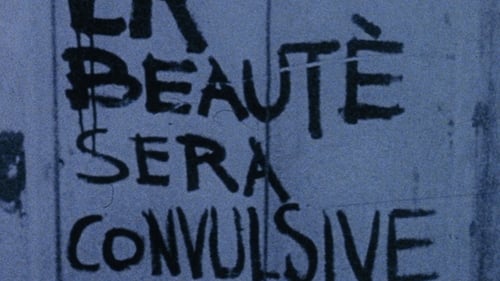
Editor
An analysis of the social upheaval of May 1968, made in the immediate wake of the workers’ and students’ protests. The picture consists of two parts, each with with identical image tracks, and differing narration.

Director of Photography
An analysis of the social upheaval of May 1968, made in the immediate wake of the workers’ and students’ protests. The picture consists of two parts, each with with identical image tracks, and differing narration.

Writer
An analysis of the social upheaval of May 1968, made in the immediate wake of the workers’ and students’ protests. The picture consists of two parts, each with with identical image tracks, and differing narration.

Director
An analysis of the social upheaval of May 1968, made in the immediate wake of the workers’ and students’ protests. The picture consists of two parts, each with with identical image tracks, and differing narration.
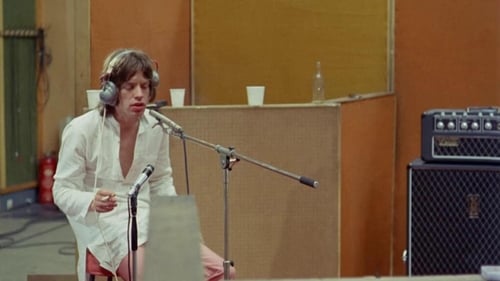
Writer
An exhilarating, provocative motion picture. The Rolling Stones rehearse their latest song, "Sympathy For the Devil," in a London studio. Beginning as a ballad, the track gradually acquires a pulsating groove, which gets Jagger into a rousing vocal display of soulful emotion that Godard captures on film.

Director
An exhilarating, provocative motion picture. The Rolling Stones rehearse their latest song, "Sympathy For the Devil," in a London studio. Beginning as a ballad, the track gradually acquires a pulsating groove, which gets Jagger into a rousing vocal display of soulful emotion that Godard captures on film.
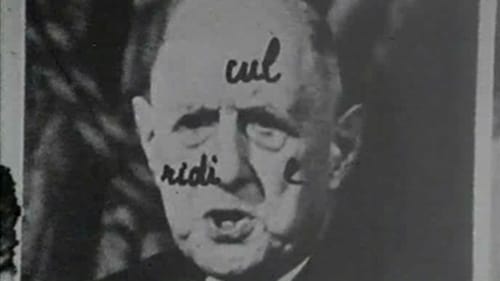
Director
A series of 41 documentary shorts, directed (without credit) by several famous French filmmakers and each running between two and four minutes. Each "tract" espouses a leftist political viewpoint through the filmed depiction of real-life events, including workers' strikes and the events of Paris in May '68.

Himself
Jean-Luc Godard visits the NYU in order to discuss his latest feature "La chinoise" with graduate students on filmmaking and politics.

Director
In the 1968 movement in Paris, Jean-Luc Godard made a 16mm, 3-minute long film, Film-tract No.1968, Le Rouge, in collaboration with French artist Gérard Fromanger. Starting with the shot identifying its title written in red paint on the Le Monde for 31 July 1968, the film shows the process of making Fromanger’s poster image, which is thick red paint flows over a tri-color French flag. —Hye Young Min
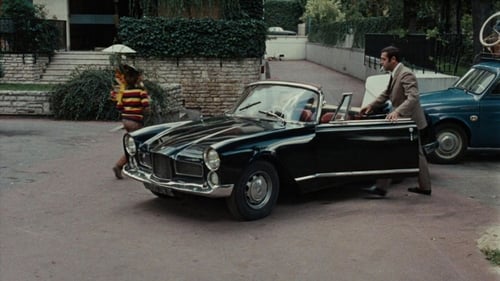
Director
A supposedly idyllic weekend trip to the countryside turns into a never-ending nightmare of traffic jams, revolution, cannibalism and murder as French bourgeois society starts to collapse under the weight of its own consumer preoccupations.

Screenplay
A supposedly idyllic weekend trip to the countryside turns into a never-ending nightmare of traffic jams, revolution, cannibalism and murder as French bourgeois society starts to collapse under the weight of its own consumer preoccupations.
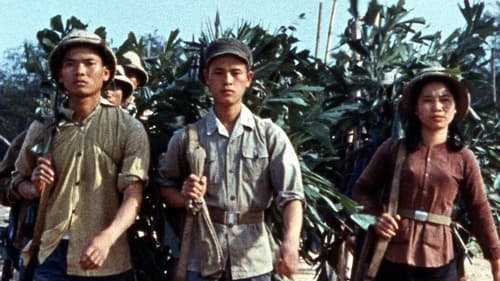
himself
In seven different parts, Godard, Ivens, Klein, Lelouch, Marker, Resnais, and Varda show their sympathy for the North-Vietnamese army during the Vietnam War.

Director
In seven different parts, Godard, Ivens, Klein, Lelouch, Marker, Resnais, and Varda show their sympathy for the North-Vietnamese army during the Vietnam War.
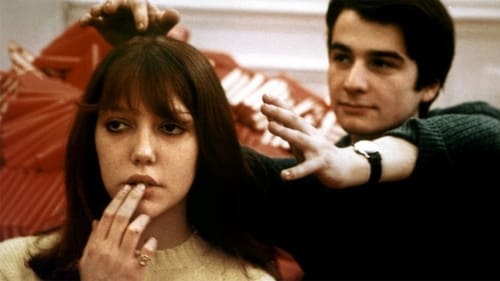
Writer
A small group of French students are studying Mao, trying to find out their position in the world and how to change the world to a Maoistic community using terrorism.

Director
A small group of French students are studying Mao, trying to find out their position in the world and how to change the world to a Maoistic community using terrorism.

Lui-même
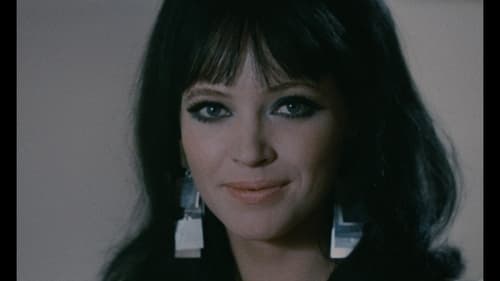
Writer
A collection of sketches that tells the story of prostitution through the ages.

Director
A collection of sketches that tells the story of prostitution through the ages.
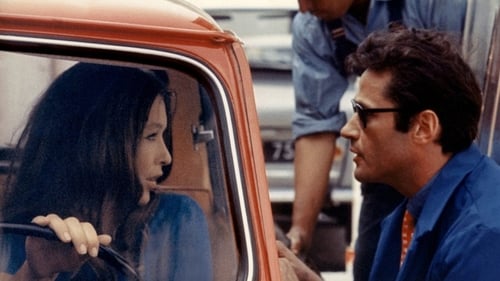
Narrator (voice)
As the city of Paris and the French people grow in consumer culture, a housewife living in a high-rise apartment with her husband and two children takes to prostitution to help pay the bills.

Writer
As the city of Paris and the French people grow in consumer culture, a housewife living in a high-rise apartment with her husband and two children takes to prostitution to help pay the bills.

Director
As the city of Paris and the French people grow in consumer culture, a housewife living in a high-rise apartment with her husband and two children takes to prostitution to help pay the bills.
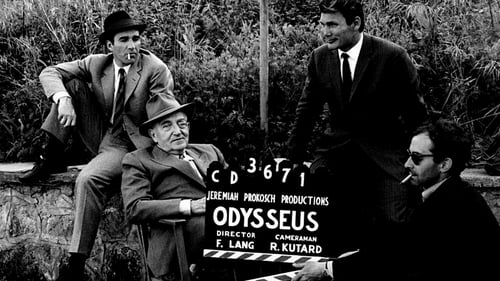
Himself
An hour-long discussion between Fritz Lang and Jean-Luc Godard in which they discuss a variety of art forms, the role of the cinema, their collaboration together, and much more. (Filmed in 1964 but released for TV in 1967.)
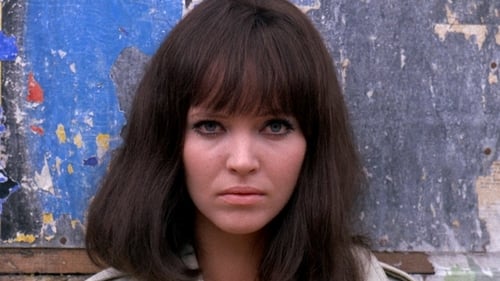
Richard Politzer (voice) (uncredited)
Paula Nelson goes to Atlantic City to meet her lover, Richard Politzer, but finds him dead and decides to investigate his death. In her hotel room, she meets Typhus, whom she ends up knocking out. His corpse is later found in the apartment of David Goodis, a writer. Paula is arrested and interrogated. From then on, she encounters many gangsters.

Director
Paula Nelson goes to Atlantic City to meet her lover, Richard Politzer, but finds him dead and decides to investigate his death. In her hotel room, she meets Typhus, whom she ends up knocking out. His corpse is later found in the apartment of David Goodis, a writer. Paula is arrested and interrogated. From then on, she encounters many gangsters.

Writer
Paula Nelson goes to Atlantic City to meet her lover, Richard Politzer, but finds him dead and decides to investigate his death. In her hotel room, she meets Typhus, whom she ends up knocking out. His corpse is later found in the apartment of David Goodis, a writer. Paula is arrested and interrogated. From then on, she encounters many gangsters.

Collective contribution to a history of cinema, this issue of the “Civilisations” collection also takes part in the genesis of Deux ou trois choses que je sais d'elle and La Chinoise
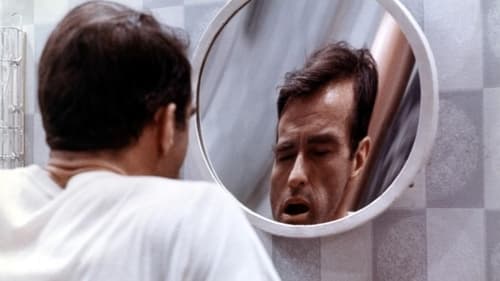
Orlovsky's Friend (uncredited)
An American scientist is sent by the CIA to East Germany to retrieve a secret microfilm from a Soviet scientist interested in defecting to the West but the Stasi secret police's surveillance complicates matters.
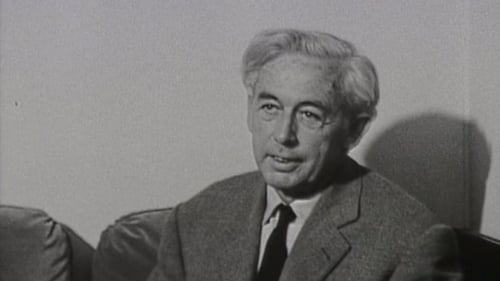
Self
A documentary, originally produced in 1966 for the French TV series "Pour le plaisir," about Robert Bresson's film "Au Hasard Balthazar," featuring interviews and discussions with Bresson, Jean-Luc Godard, Louis Malle, Marguerite Duras and others.
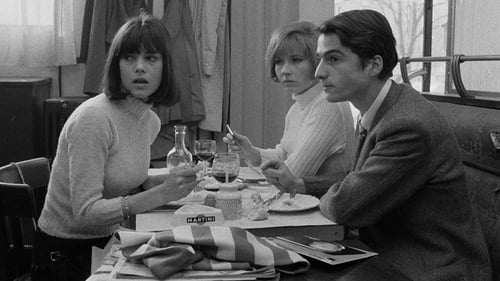
Director
Paul, a young idealist trying to figure out what he wants to do with his life, takes a job interviewing people for a marketing research firm. He moves in with aspiring pop singer Madeleine. Paul, however, is disillusioned by the growing commercialism in society, while Madeleine just wants to be successful. The story is told in a series of 15 unrelated vignettes.

Writer
Paul, a young idealist trying to figure out what he wants to do with his life, takes a job interviewing people for a marketing research firm. He moves in with aspiring pop singer Madeleine. Paul, however, is disillusioned by the growing commercialism in society, while Madeleine just wants to be successful. The story is told in a series of 15 unrelated vignettes.
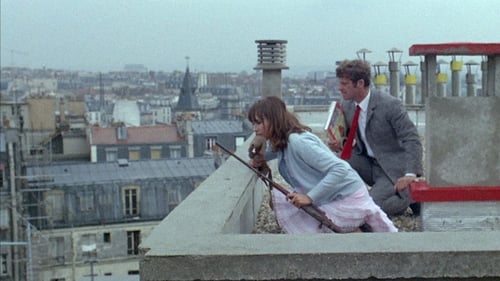
Writer
Pierrot escapes his boring society and travels from Paris to the Mediterranean Sea with Marianne, a girl chased by hit-men from Algeria. They lead an unorthodox life, always on the run.

Director
Pierrot escapes his boring society and travels from Paris to the Mediterranean Sea with Marianne, a girl chased by hit-men from Algeria. They lead an unorthodox life, always on the run.
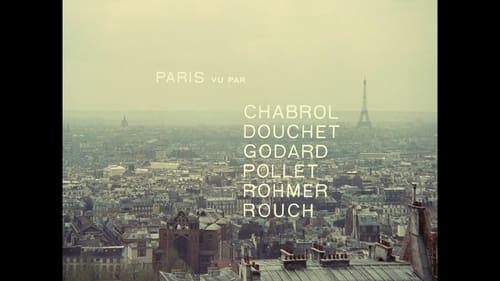
Writer
Six vignettes set in different sections of Paris, by six directors. St. Germain des Pres (Douchet), Gare du Nord (Rouch), Rue St. Denis (Pollet), and Montparnasse et Levallois (Godard) are stories of love, flirtation and prostitution; Place d'Etoile (Rohmer) concerns a haberdasher and his umbrella; and La Muette (Chabrol), a bourgeois family and earplugs.

Director
Six vignettes set in different sections of Paris, by six directors. St. Germain des Pres (Douchet), Gare du Nord (Rouch), Rue St. Denis (Pollet), and Montparnasse et Levallois (Godard) are stories of love, flirtation and prostitution; Place d'Etoile (Rohmer) concerns a haberdasher and his umbrella; and La Muette (Chabrol), a bourgeois family and earplugs.
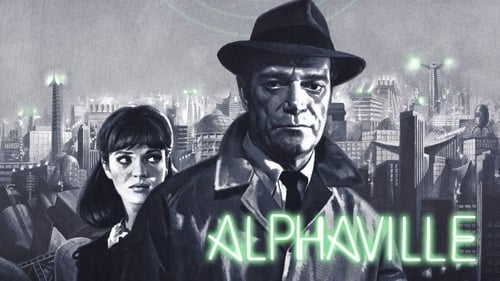
Director
An American private-eye arrives in Alphaville, a futuristic city on another planet which is ruled by an evil scientist named Von Braun, who has outlawed love and self-expression.

Screenplay
An American private-eye arrives in Alphaville, a futuristic city on another planet which is ruled by an evil scientist named Von Braun, who has outlawed love and self-expression.

Director
Woman sends the wrong letter to two men in a feisty love triangle tale.
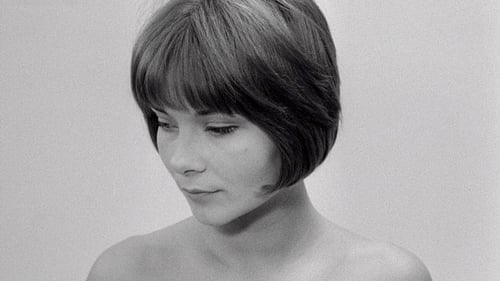
The Narrator (voice) (uncredited)
In an exploration of love and adultery, a woman is conflicted between her husband, her lover and herself.

Screenplay
In an exploration of love and adultery, a woman is conflicted between her husband, her lover and herself.

Director
In an exploration of love and adultery, a woman is conflicted between her husband, her lover and herself.
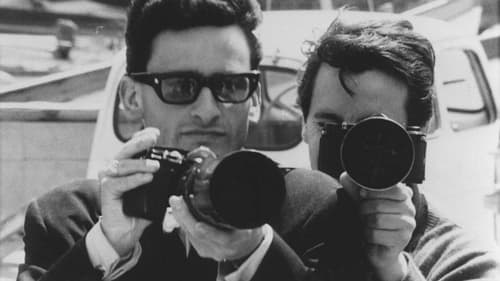
Himself
Paparazzi explores the relationship between Brigitte Bardot and groups of invasive photographers attempting to photograph her while she works on the set of Jean-Luc Godard's film Le Mépris (Contempt). Through video footage of Bardot, interviews with the paparazzi, and still photos of Bardot from magazine covers and elsewhere, director Rozier investigates some of the ramifications of international movie stardom, specifically the loss of privacy to the paparazzi. The film explains the shooting of the film on the island of Capri, and the photographers' valiant, even foolishly dangerous, attempts to get a photograph of Bardot.
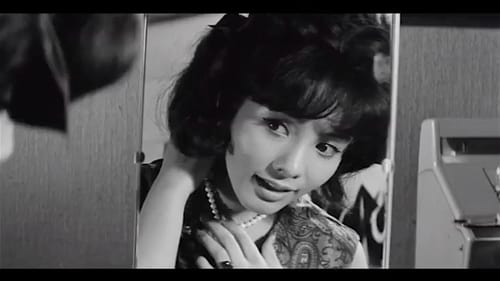
Director
Five swindle stories, taking place in five international cities: Tokyo, Japan ("Fumiko's Five Benefactors" by Hiromichi Horikawa); Amsterdam, The Netherlands ("A River of Diamonds" by Roman Polanski); Naples, Italy ("The Road Map" by Ugo Gregoretti); Paris, France ("The Man Who Sold the Eiffel Tower" by Claude Chabrol); and Marrakesh, Morocco ("The Confidence Man" by Jean-Luc Godard). Godard's segment was not included in the original French cinema release, and Polanski's segment was not included on the 2016 home disc release.

Writer
Patricia Leacock, reporter for an american television, is in Morocco on the trail of a counterfeiter-philanthropist. Based on a real story which Chaplin had already thought to adapt into a film.

Director
Patricia Leacock, reporter for an american television, is in Morocco on the trail of a counterfeiter-philanthropist. Based on a real story which Chaplin had already thought to adapt into a film.
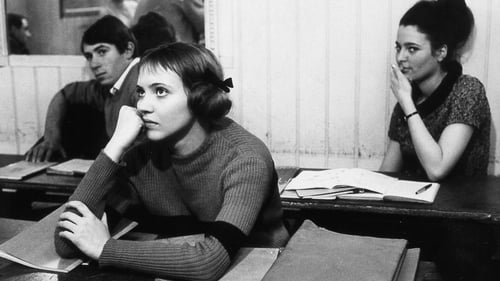
Narrator (voice) (uncredited)
Cinephile slackers Franz and Arthur spend their days mimicking the antiheroes of Hollywood noirs and Westerns while pursuing the lovely Odile. The misfit trio upends convention at every turn, be it through choreographed dances in cafés or frolicsome romps through the Louvre. Eventually, their romantic view of outlaws pushes them to plan their own heist, but their inexperience may send them out in a blaze of glory -- which could be just what they want.

Director
Cinephile slackers Franz and Arthur spend their days mimicking the antiheroes of Hollywood noirs and Westerns while pursuing the lovely Odile. The misfit trio upends convention at every turn, be it through choreographed dances in cafés or frolicsome romps through the Louvre. Eventually, their romantic view of outlaws pushes them to plan their own heist, but their inexperience may send them out in a blaze of glory -- which could be just what they want.

Screenplay
Cinephile slackers Franz and Arthur spend their days mimicking the antiheroes of Hollywood noirs and Westerns while pursuing the lovely Odile. The misfit trio upends convention at every turn, be it through choreographed dances in cafés or frolicsome romps through the Louvre. Eventually, their romantic view of outlaws pushes them to plan their own heist, but their inexperience may send them out in a blaze of glory -- which could be just what they want.

Self
Made for Cinéastes de notre temps series. In 1964, several French New Wave auteurs discuss the success and crisis of the wave. Featuring Claude Chabrol, François Truffaut, Jacques Rivette, Jean-Luc Godard, Jacques Rozier, Jacques Demy, Agnès Varda, Jean Rouch, and many others.
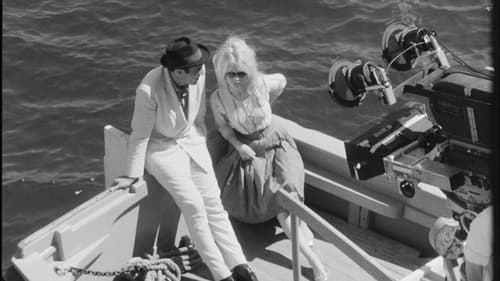
Himself
Le Parti des choses: Bardot et Godard is a documentary short following director Jean-Luc Godard on the set of Contempt.
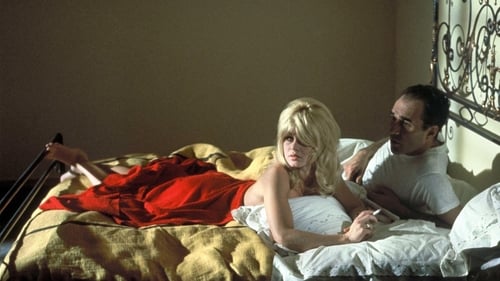
Director
A philistine in the art film business, Jeremy Prokosch is a producer unhappy with the work of his director. Prokosch has hired Fritz Lang to direct an adaptation of "The Odyssey," but when it seems that the legendary filmmaker is making a picture destined to bomb at the box office, he brings in a screenwriter to energize the script. The professional intersects with the personal when a rift develops between the writer and his wife.

Lang's Assistant Director
A philistine in the art film business, Jeremy Prokosch is a producer unhappy with the work of his director. Prokosch has hired Fritz Lang to direct an adaptation of "The Odyssey," but when it seems that the legendary filmmaker is making a picture destined to bomb at the box office, he brings in a screenwriter to energize the script. The professional intersects with the personal when a rift develops between the writer and his wife.

Screenplay
A philistine in the art film business, Jeremy Prokosch is a producer unhappy with the work of his director. Prokosch has hired Fritz Lang to direct an adaptation of "The Odyssey," but when it seems that the legendary filmmaker is making a picture destined to bomb at the box office, he brings in a screenwriter to energize the script. The professional intersects with the personal when a rift develops between the writer and his wife.
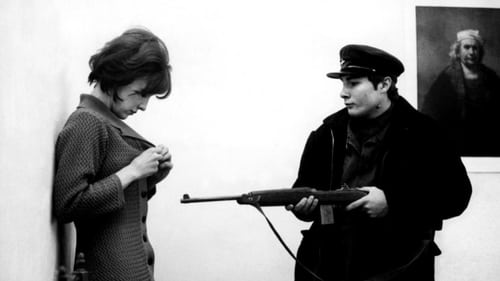
Director
During a war in an imaginary country, unscrupulous soldiers recruit poor farmers with promises of an easy and happy life. Two of these farmers write to their wives of their exploits.

Writer
During a war in an imaginary country, unscrupulous soldiers recruit poor farmers with promises of an easy and happy life. Two of these farmers write to their wives of their exploits.
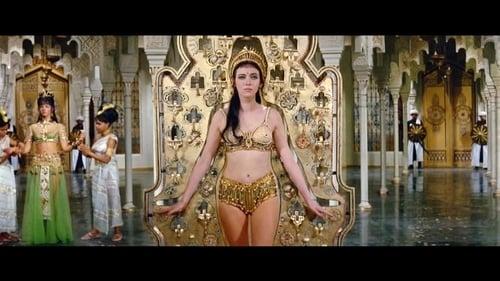
Handwalker
Sheherazade is promised to a powerful Sultan as a gift in exchange for free passage to the Holy Land. When the Sultan's underling saves her from certain death, she falls madly in love with her hero.
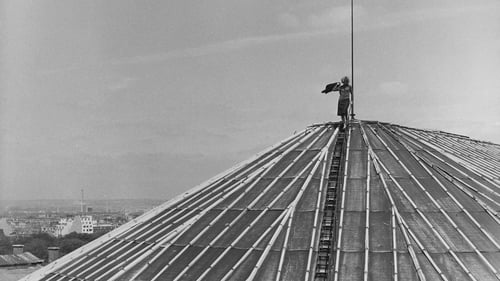
Self (uncredited)
Candid interviews of ordinary people on the meaning of happiness, an often amorphous and inarticulable notion that evokes more basic and fundamentally egalitarian ideals of self-betterment, prosperity, tolerance, economic opportunity, and freedom.

Screenplay
Four short films by four different directors dealing with the principles of modern life.

Director
Four short films by four different directors dealing with the principles of modern life.
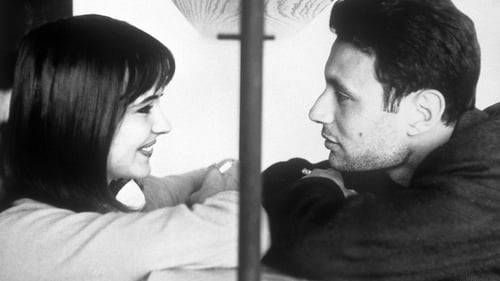
Man at Railway Station (uncredited)
During the Algerian war for independence from France, a young Frenchman living in Geneva who belongs to a right-wing terrorist group and a young woman who belongs to a left-wing terrorist group meet and fall in love. Complications ensue when the man is suspected by the members of his terrorist group of being a double agent.

Writer
During the Algerian war for independence from France, a young Frenchman living in Geneva who belongs to a right-wing terrorist group and a young woman who belongs to a left-wing terrorist group meet and fall in love. Complications ensue when the man is suspected by the members of his terrorist group of being a double agent.

Director
During the Algerian war for independence from France, a young Frenchman living in Geneva who belongs to a right-wing terrorist group and a young woman who belongs to a left-wing terrorist group meet and fall in love. Complications ensue when the man is suspected by the members of his terrorist group of being a double agent.

Writer
Twelve episodic tales in the life of a Parisian woman and her slow descent into prostitution.

The Lover Reading Poe (voice) (uncredited)
Twelve episodic tales in the life of a Parisian woman and her slow descent into prostitution.

Director
Twelve episodic tales in the life of a Parisian woman and her slow descent into prostitution.

Editor
Twelve episodic tales in the life of a Parisian woman and her slow descent into prostitution.

A love triangle between 23-year-old Emma (Anna Karina), her older boyfriend (Georges Descrières) and the younger man (Jacques Perrin) she meets while on vacation by herself.
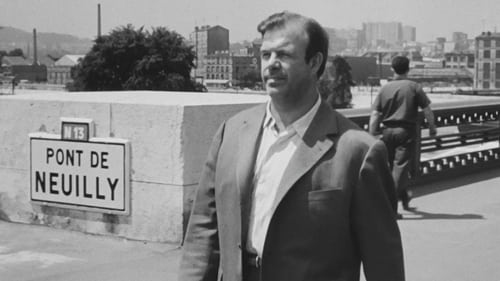
Le Mélomane (uncredited)
An American in Paris lives by sponging off his working friends, and throws a party using borrowed money when his rich American aunt dies, believing firmly in his horoscope.
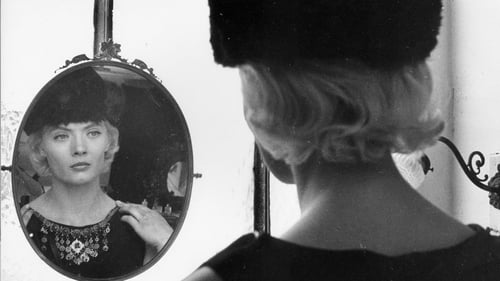
L'Homme aux Lunettes Noires / Actor in Silent Film
Agnès Varda eloquently captures Paris in the sixties with this real-time portrait of a singer set adrift in the city as she awaits test results of a biopsy. A chronicle of the minutes of one woman’s life, Cléo from 5 to 7 is a spirited mix of vivid vérité and melodrama, featuring a score by Michel Legrand and cameos by Jean-Luc Godard and Anna Karina.

Director
Jean-Luc Godard's short segment made for “Les sept péchés capitaux”.
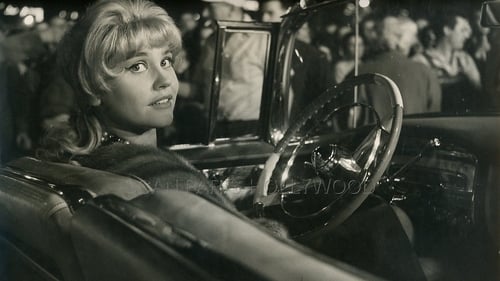
Director
Seven directors each dramatize one of the seven deadly sins in a short film. In "Anger," a domestic argument over a fly in the Sunday soup escalates into nuclear war. In "Sloth," a movie star would rather pay someone to tie his shoe than bend over to do it himself, and he can't be bothered to accept a starlet's sexual favors. In "Gluttony," a peasant family on its way to the funeral of a relative who died from indigestion stops regularly to eat and drink en route, arriving in time to eat some more. In "Greed," a high-class prostitute refunds the price of a cadet's lottery ticket. In "Pride," an unfaithful wife finds reason to reform. And so on through lust and envy.

Self
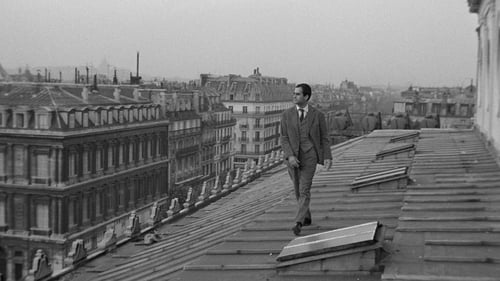
Hans Lucas
A young woman joins a theatrical troupe where she slowly believes that the director is involved with a secret group and that he is in grave danger.
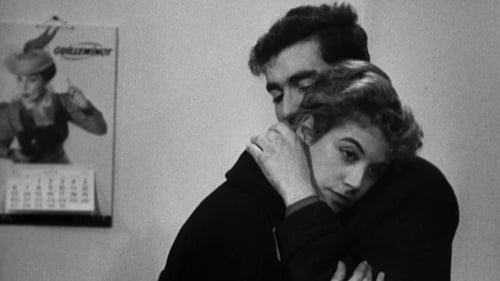
Walter
Two young people, Walter and Charlotte, are walking through a small village in Switzerland a snowy winter day. Walter introduces Charlotte to Clara, hoping to make Charlotte jealous. After saying good-bye to Clara, Walter accompanies Charlotte into her house, although she doesn't want him to. Charlotte is hungry and cooks a steak. She asks Walter if he wants a piece of it. He says no, but she gives him a small piece anyway. He wants a kiss, and she says no. She starts to compare herself with Clara, who Walter agrees is more beautiful. In spite of this, Walter says he likes Charlotte much more, but she thinks he is lying. She notices that he is cold and shivering. She hugs him, he kisses her, and she starts kissing him. After leaving the house he accompanies her to the train.
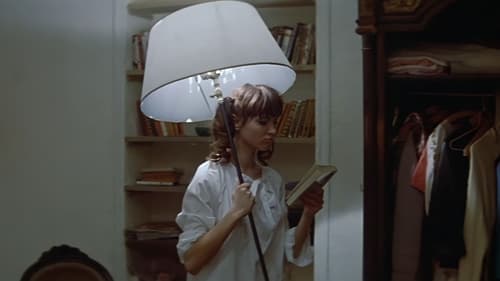
Title Designer
Longing for a baby, a stripper pursues another man in order to make her boyfriend jealous.

Writer
Longing for a baby, a stripper pursues another man in order to make her boyfriend jealous.

Director
Longing for a baby, a stripper pursues another man in order to make her boyfriend jealous.
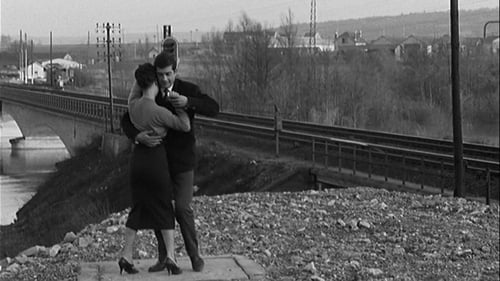
Writer
Godard narrates the loosely constructed story of a young woman attempting to make her way from her home in the country to Paris, amid a massive flood.

Editor
Godard narrates the loosely constructed story of a young woman attempting to make her way from her home in the country to Paris, amid a massive flood.

Narrator
Godard narrates the loosely constructed story of a young woman attempting to make her way from her home in the country to Paris, amid a massive flood.

Director
Godard narrates the loosely constructed story of a young woman attempting to make her way from her home in the country to Paris, amid a massive flood.
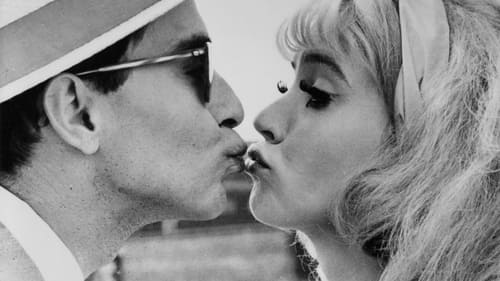
L'homme aux lunettes noires
A subtitle warns, "beware of dark sunglasses." Anna and her lover, whose looks in bowler and bow tie are reminiscent of a young Buster Keaton, kiss chastely on a bridge overlooking the Seine. He dons sunglasses and waves as she runs down a stairway to the river's edge, then watches in horror as she's knocked flat and loaded into the back of a hearse. In vain, he gives chase. Disconsolate, he buys a large funeral wreath and a handkerchief from sympathetic vendors. He removes the glasses to wipe his eyes and realizes they are the cause of all his woe. He replays the farewell without the glasses.
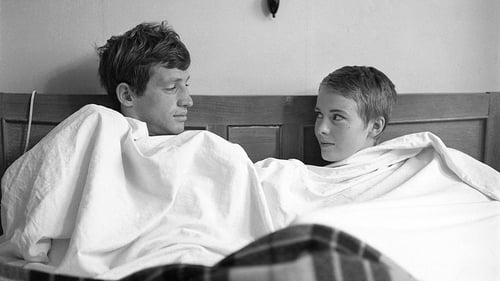
Director
A small-time thief steals a car and impulsively murders a motorcycle policeman. Wanted by the authorities, he attempts to persuade a girl to run away to Italy with him.

The Snitch
A small-time thief steals a car and impulsively murders a motorcycle policeman. Wanted by the authorities, he attempts to persuade a girl to run away to Italy with him.

Screenplay
A small-time thief steals a car and impulsively murders a motorcycle policeman. Wanted by the authorities, he attempts to persuade a girl to run away to Italy with him.
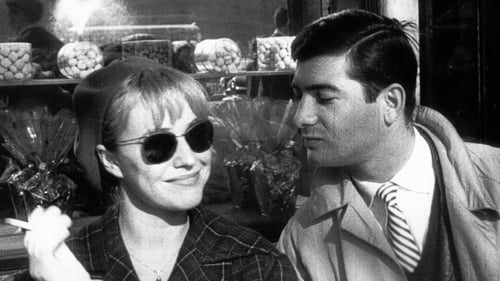
Director
A pickup artist/womanizer named Patrick inadvertently pursues two young women who happen to be roommates.
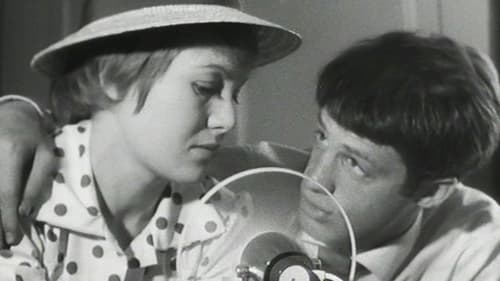
Jules (voice) (uncredited)
This short features a man who is visited by his ex-lover. The moment she arrives, the man starts his constant barrage of speech; the woman doesn't say much. She just mocks the man and pretends she isn't listening. She pulls faces at him and larks about; while the man is trying his best to get her back in his life, then in the next sentence he says he hates her.

Editor
This short features a man who is visited by his ex-lover. The moment she arrives, the man starts his constant barrage of speech; the woman doesn't say much. She just mocks the man and pretends she isn't listening. She pulls faces at him and larks about; while the man is trying his best to get her back in his life, then in the next sentence he says he hates her.

Writer
This short features a man who is visited by his ex-lover. The moment she arrives, the man starts his constant barrage of speech; the woman doesn't say much. She just mocks the man and pretends she isn't listening. She pulls faces at him and larks about; while the man is trying his best to get her back in his life, then in the next sentence he says he hates her.

Director
This short features a man who is visited by his ex-lover. The moment she arrives, the man starts his constant barrage of speech; the woman doesn't say much. She just mocks the man and pretends she isn't listening. She pulls faces at him and larks about; while the man is trying his best to get her back in his life, then in the next sentence he says he hates her.

Editor
Godard returned to Paris briefly before getting a job as a construction worker on a dam project in Switzerland. With the money from the job, he made a short film about the building of the dam called Opération béton (Operation Concrete).

Narrator (voice)
Godard returned to Paris briefly before getting a job as a construction worker on a dam project in Switzerland. With the money from the job, he made a short film about the building of the dam called Opération béton (Operation Concrete).

Writer
Godard returned to Paris briefly before getting a job as a construction worker on a dam project in Switzerland. With the money from the job, he made a short film about the building of the dam called Opération béton (Operation Concrete).

Director
Godard returned to Paris briefly before getting a job as a construction worker on a dam project in Switzerland. With the money from the job, he made a short film about the building of the dam called Opération béton (Operation Concrete).
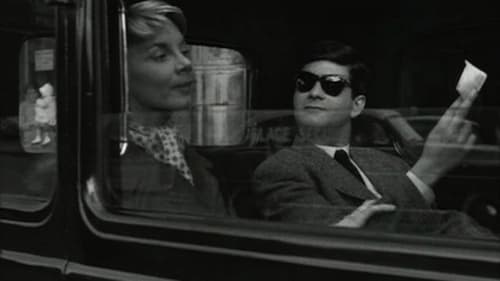
Party guest (uncredited)
Claire (Vitry) is a chic young Parisian woman married to a somewhat older husband, Jean (Doniol-Valcroze). As the story opens, she leaves her husband playing baroque music at the piano, telling him she is off to see her sister, Solange. In reality she meets her lover, Claude (Brialy) at his apartment; after some idle chatter and love-making he tells her a story of the shriveled heads that the Jivaro Indians used to give their lovers as tokens of affection but, as she shivers in disgust, he gives her a mink instead. How will they hide it from her husband though?
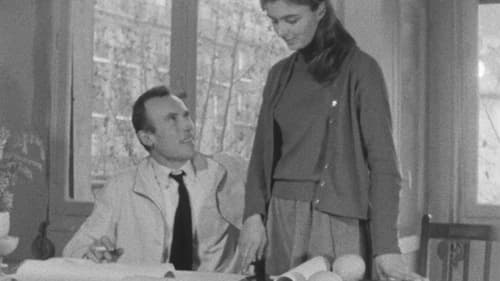
Producer
Some time after marrying a sensual girl, Pozdnychev realizes the only link to his spouse is that of physical love. When a violinist with whom his wife plays regularly the “Sonata to Kreutzer” appears, the young woman blooms in a new passion. From then on, her husband is eaten away by jealousy.

Ami Journaliste
Some time after marrying a sensual girl, Pozdnychev realizes the only link to his spouse is that of physical love. When a violinist with whom his wife plays regularly the “Sonata to Kreutzer” appears, the young woman blooms in a new passion. From then on, her husband is eaten away by jealousy.

Director of Photography
Agnès, a bourgeois young woman from Geneva, writes a letter to a friend, telling how she ended up cheating on her husband. Fascinated by the attitudes and gestures adopted by a prostitute to attract clients, Agnès decides to imitate her and seduces the first man she sees, sitting on a garden bench.

The Man Who Looks at the Balcony (uncredited)
Agnès, a bourgeois young woman from Geneva, writes a letter to a friend, telling how she ended up cheating on her husband. Fascinated by the attitudes and gestures adopted by a prostitute to attract clients, Agnès decides to imitate her and seduces the first man she sees, sitting on a garden bench.

Editor
Agnès, a bourgeois young woman from Geneva, writes a letter to a friend, telling how she ended up cheating on her husband. Fascinated by the attitudes and gestures adopted by a prostitute to attract clients, Agnès decides to imitate her and seduces the first man she sees, sitting on a garden bench.

Writer
Agnès, a bourgeois young woman from Geneva, writes a letter to a friend, telling how she ended up cheating on her husband. Fascinated by the attitudes and gestures adopted by a prostitute to attract clients, Agnès decides to imitate her and seduces the first man she sees, sitting on a garden bench.

Director
Agnès, a bourgeois young woman from Geneva, writes a letter to a friend, telling how she ended up cheating on her husband. Fascinated by the attitudes and gestures adopted by a prostitute to attract clients, Agnès decides to imitate her and seduces the first man she sees, sitting on a garden bench.
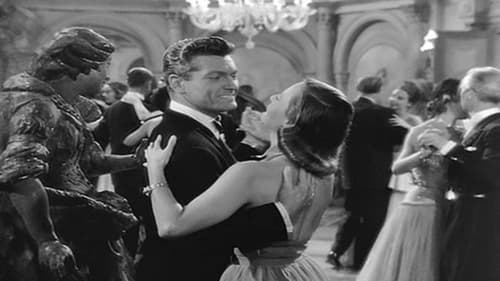
Un voyageur qui sort de la Gare de l'Est (uncredited)
Evelyne, a judge's young wife, falls in love with Rémy while vacationing in Italy. Upon returning home, she must decide between telling her husband and continuing to see Rémy.

Self
Though Godard got a little money from his family, he admitted that the money that went into Rivette’s film came from stealing and selling books from his grandfather Monod’s “Valérianum”. The film featured four actors: two women and two men, one of them Godard. According to Rivette, “It ran 40 minutes and nothing happens. It’s just four people sitting around a table, looking at each other. After ten minutes, people started to leave, and at the end, the only ones who stayed were Jean-Luc and a girl.” (Richard Brody)
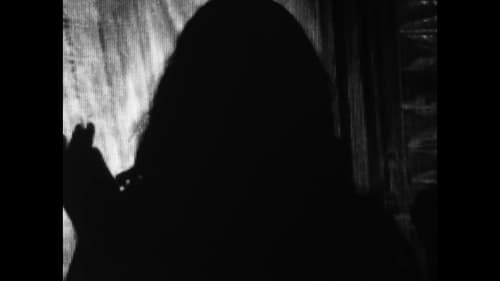
Godard

JLG
An experimental tribute to Jean-Luc Godard, his documentary works and his insights in our modern world.

Writer

Director

Writer

Director

Producer
A meditation on the French new wave film movement, MA BITE SENT LE FROMAGE ET LE POISSON stylistically pays homage to the icons of the movement, including its head figure, Jean Luc Godard, and Jean Pierre Leaud, one of the most popular actors of the movement.

Producer
A meditation on the French new wave film movement, MA BITE SENT LE FROMAGE ET LE POISSON stylistically pays homage to the icons of the movement, including its head figure, Jean Luc Godard, and Jean Pierre Leaud, one of the most popular actors of the movement.

Himself
An interview with Jean-Luc Godard around the time of his film Notre Musique.
